|

HOME |
ABOUT | INDEX |
NEWS |
FACEBOOK |
CONTACT
WORLD
European |
African | International
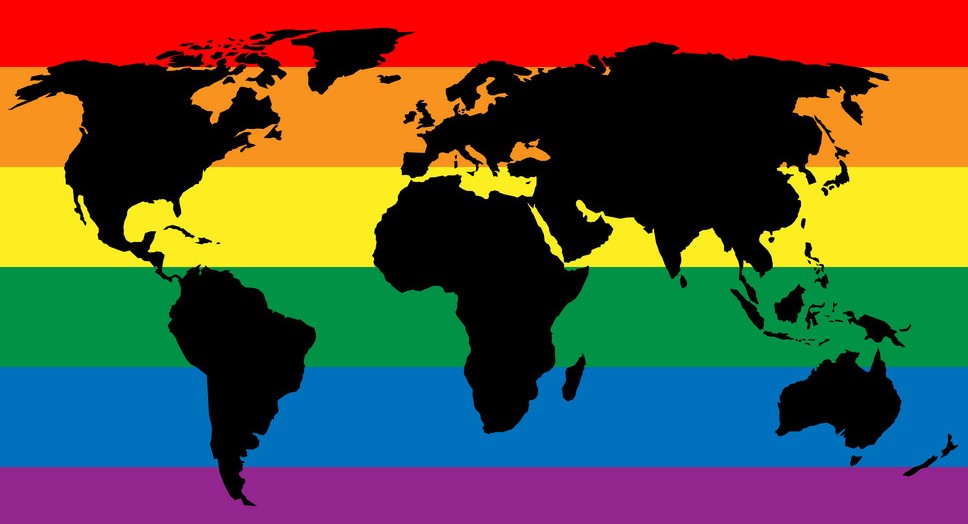

African American|Black
Hispanic|Latinx
Arab|Muslim|Middle East
Asian|Pacific
Indian|Hindu|Sikh
Jewish|Israeli
Diversity|Inclusion

LGBTQ Rights in Europe
Lesbian, gay, bisexual, transgender, and
queer rights are widely diverse in
Europe per country. 15 out of the 25
countries that have legalized same-sex
marriage worldwide are situated in
Europe.
A
further 13 European countries have
legalized civil unions or other forms of
recognition for same-sex couples.
The governments of Switzerland and the
Czech Republic are considering
legislation to introduce same-sex
marriage. Slovenia has carried out a
referendum to legalize same-sex marriage
in December 2015 which failed to
succeed. In July 2017, both Malta and
Germany passed laws on same-sex marriage
and went into effect a couple of months
later. Same-sex marriage will be legal
in Austria from 2019. Armenia and
Estonia are the only two countries
within Europe that recognizes legally
performed same-sex marriages overseas,
but do not perform them.
Constitutions of Armenia, Bulgaria,
Croatia, Georgia, Hungary, Latvia,
Moldova, Montenegro, Poland, Serbia,
Slovakia and Ukraine recognizes marriage
only as a union of one man and one
woman.
The top three European countries in
terms of LGBTQ equality are Malta,
Norway and the United Kingdom.
In Latest Move, Russia
Adds LGBTQ Government to Official List
of Extremists and Terrorists
Flight Attendant Makes History as First
Trans Woman Crowned Miss Portugal
Activists Link US Nonprofit to
Anti-LGBTQ Laws Across Africa
34% of Wales is Queer,
Report Reveals
Meet The Gorgeous Man Poised To Become
Greece's 1st Gay Prime Minister
Xavier Espot Zamora Prime Minister Of
Andorra Comes Out
Police in Ethiopia Beg Public to Snitch on LGBTQ People
in Anti-Homosexuality Crackdown
Turkey's Erdogan Tells Supporters He
Does Not Recognize LGBTQ People
Kenya’s Controversial Anti-Homosexuality
Law: Fight for LGBTQ Rights
This Gay Nightclub in
Italy is Considered Europe’s Studio 54
Latvia Swears in Edgars
Rinkevics: EU's First Openly Gay
President
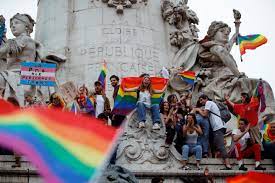
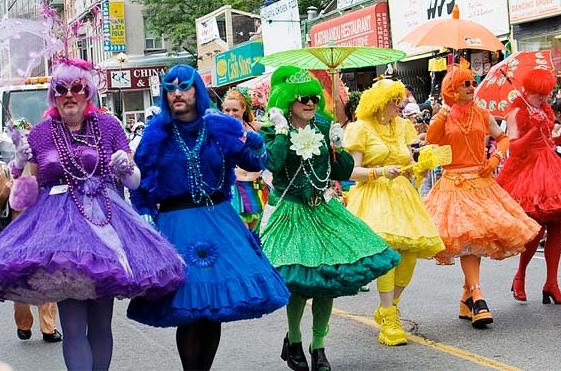
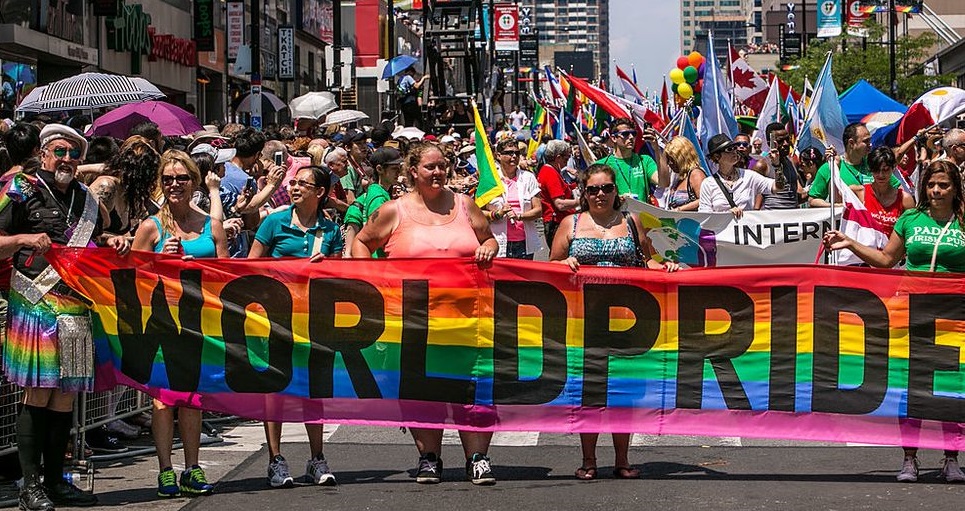
Global LGBTQ Events for 2024
--Sydney Gay and Lesbian Mardi Gras –
Australia | 16 February – 3 March
--Rainbow Games – Auckland, New Zealand
| 4 - 8 April
--Eurovision Song Contest – Malmö,
Sweden | 6 – 11 May
--Bingham Cup (Rugby) – Rome, Italy |
23-26 May
--São Paulo Pride – Brazil | 29 May – 2
June
--Pride Month – USA | 1 – 30 June
--EuroPride – Thessaloniki, Greece | 21
– 29 June
--Taiwan Pride – Taipei City | 24 - 27
October
New Survey: Half of LGBTQ Europeans Still in the Closet
ILGA: Map of Sexual
Orientation Laws Worldwide
Queer Europe:
Entertainment Guide
World Wide Pride Celebrations
Most Gay-Friendly Countries In Europe
Survey: Most LGBTQ Europeans Fear Holding Partner's Hand
in Public
Stockholm Deputy Mayor Dons Drag for
Children’s Story Hour
Estonia Set to Become First Baltic State
to Legalize Same-Sex Marriage
Turkey’s President Erdogan Claims LGBTQ Will Not Emerge
in This Country
Greece Legalizes Same-Sex Marriage in First for an Orthodox Christian Nation
Greece will be the 16th European Union nation and the 35th country worldwide to legalize same-sex marriages
Greek lawmakers voted in Feb 2024 to legalize same-sex marriage in a landmark decision that will make it the first Orthodox Christian country to do so.
The passage of the law — which was drafted by Greek Prime Minister Kyriakos Mitsotakis’ center-right government and had support from four left-wing parties — makes the nation the 16th within the European Union and the 35th worldwide to legalize same-sex nuptials, according to a tally from the LGBTQ advocacy group Human Rights Campaign. Gay marriage is also legal in the territories of Taiwan and Greenland.
A cross-party majority of 176 lawmakers in the 300-seat Parliament voted in favor of the bill. Another 76 rejected the reform while two abstained from the vote and 46 were not present for the vote.
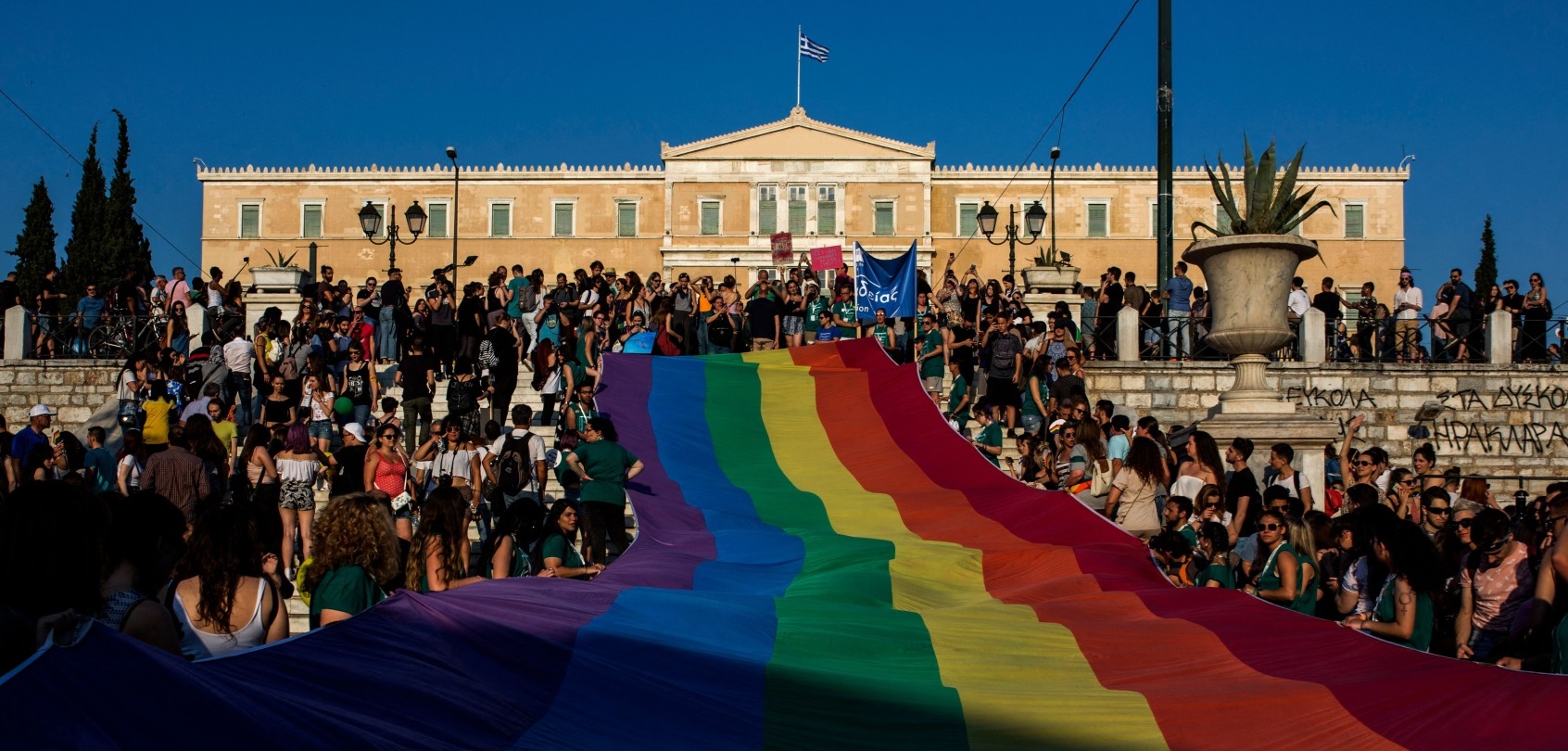 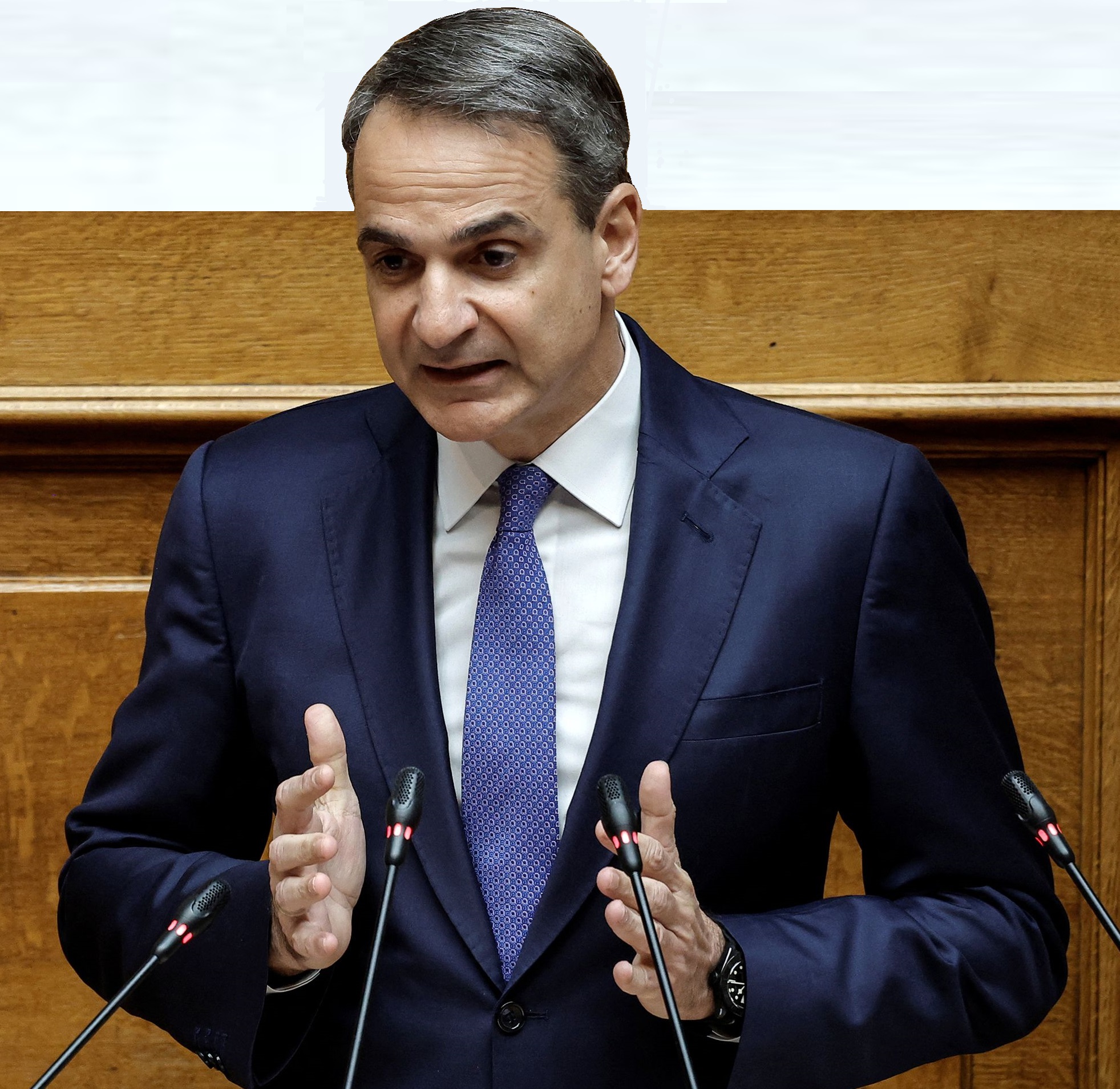
Greece Legalizes Same-Sex Marriage in First for an Orthodox Christian Nation
Hundreds of Protesters Opposed to Bill Allowing Same-Sex Marriage Rally in Greek Capital
Greece Legalizes Same-Sex Marriage and Adoption
Greece Legalizes Same-Sex Marriage: First for Orthodox Christian Country
“People who have been invisible will finally be made visible around us. And with them, many children will finally find their rightful place,” Mitsotakis told lawmakers ahead of the evening vote.
Greece has allowed civil unions for same-sex couples since 2015. However, that law did not permit same-sex parents to both claim legal guardianship over their children. The new law amends this, though it still would prohibit same-sex male couples from having children through surrogate mothers in Greece, an option available to single women and heterosexual couples who require surrogates due to health reasons.
The legalization of same-sex marriage has come under fierce criticism from the Greek Orthodox Church, which teaches that homosexuality is a sin. Conversely, some LGBTQ advocates have criticized the law, arguing that it does not go far enough. The vote comes as the Orthodox Christian nation has loosened its regulations around LGBTQ people in the last decade.
Two years after the country passed the 2015 law allowing civil unions for same-sex couples, lawmakers passed legislation that would allow people to have their gender identity legally recognized. In 2022, Greek legislators also banned the widely debunked practice of conversion therapy nationwide, something that is still widely available in more historically progressive nations, including the United States.
 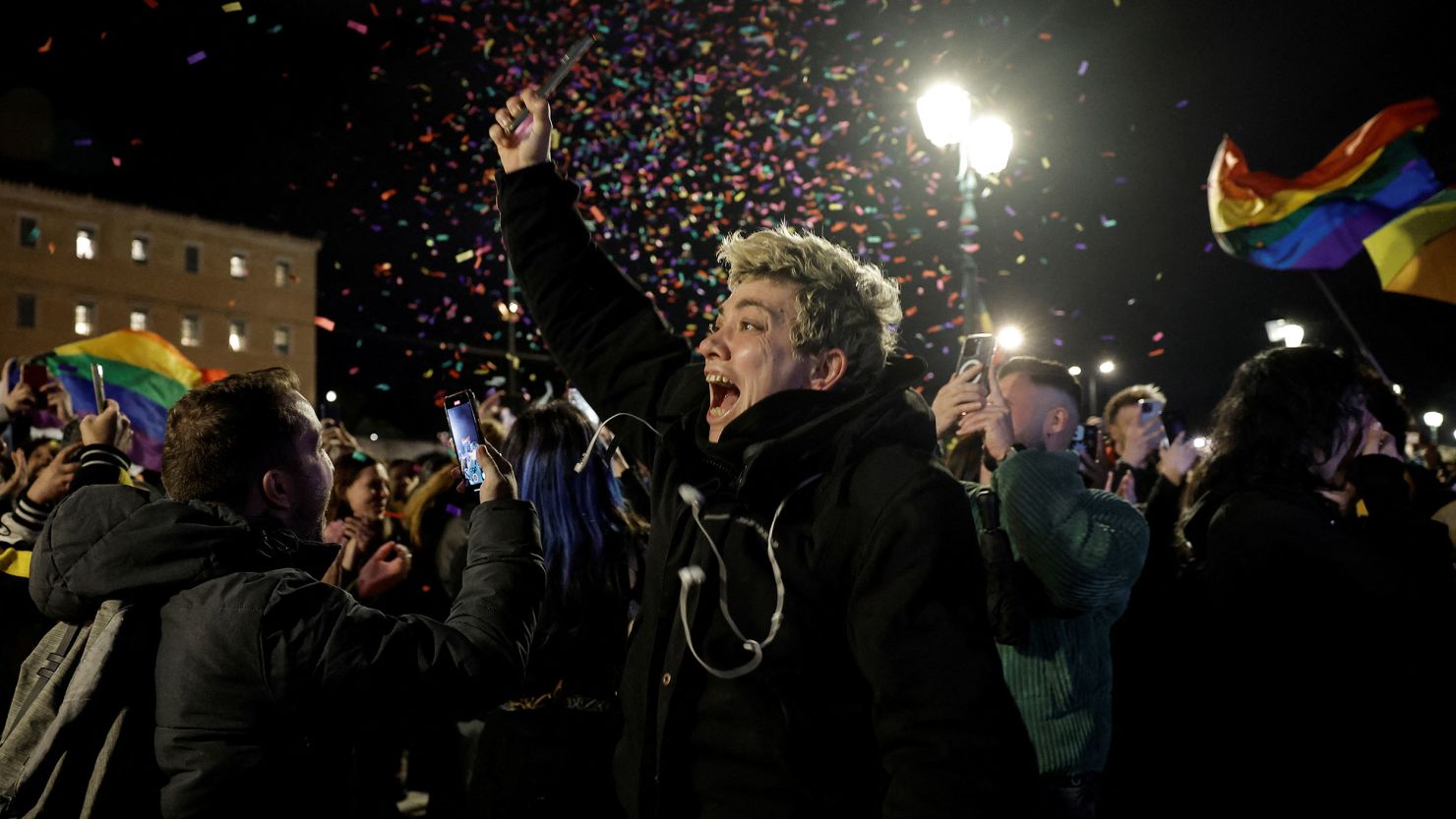
In Latest Move, Russia Adds LGBTQ Government to Official List of Extremists and Terrorists
Greece Legalizes Same-Sex Marriage in First for an
Orthodox Christian Nation
Top Irish Official Comes Out as Gay
Russia to Outlaw LGBTQ Rights Movement
Nepal Registers Its Historic First
Same-Sex Marriage
Ugandan Police Arrest Four People for Acts of
Homosexuality
John Nicolson MP Warns Scotland Faces Explosion of
Imported Transphobia From US
How LGBTQ Youth are Changing Poland’s Conservative
Culture
Russian President Signs Legislation Outlawing
Gender-Affirming Procedures
Estonia Legalizes Marriage Equality
The passage of same-sex marriage in Greece coincides with a precarious time for LGBTQ rights around the world.
While lawmakers in the United States enshrined same-sex marriage into federal law in 2022, state legislators have also proposed and enacted hundreds of anti-LGBTQ bills in recent years.
Late last year, Russia’s Supreme Court designated the LGBTQ social movement as extremist, which critics have argued effectively bans any organized advocacy on behalf of LGBTQ rights. Local reports have shown Russian police raiding gay bars in cities across the country since the court’s ruling.
And in Uganda, lawmakers enacted one of the world’s most punishing anti-LGBTQ laws, which would criminalize landlords who knowingly house LGBTQ people and impose the death penalty for “aggravated homosexuality.”
[Source: Matt Lavietes, NBC News, Feb 2024]
Thousands Protest Victor
Orban’s Bigotry at Budapest
Pride
Russia Wants to Ban All Trans Healthcare and Gender
Recognition
Pride in London Unveils Powerful New
‘Never March Alone’ Campaign
First Trans Woman Crowned Winner of Miss Netherlands
Never March Alone: Pride in London 2023
Climate of Fear: Russia Steps Up Attacks on LGBTQ People
Uganda Passes New Version of Horrific Anti-LGBTQ Law
Georgina Beyer, First Out Trans MP in
World History, Dies at 65
Turkish Police Break Up LGBTQ Pride March
UN Steps Up Efforts Against Anti-LGBTQ
Violence and Discrimination
Best French Lesbian Movies
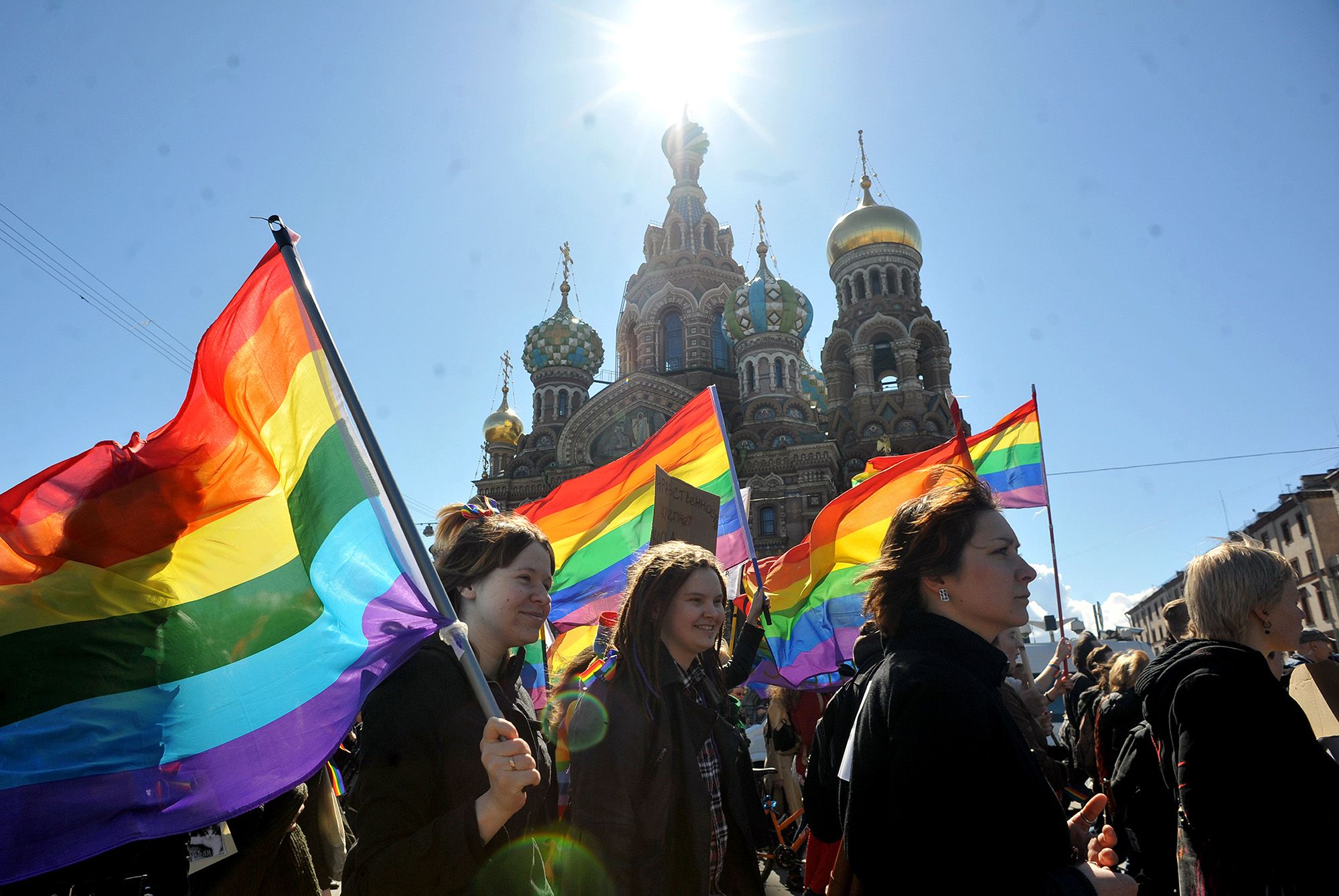
Russia Outlaws LGBTQ Rights Movement
Labels it Extremist
The Russian Supreme Court
has approved a ban on the “international LGBTQ movement”.
This allows LGBTQ activists to be labeled as “extremists”
and all activities related to LGBTQ rights can be banned.
The Supreme Court's ruling seemed inevitable, as the
Ministry of Justice requested approval for the ban two
weeks ago. With this, Russia takes another step to limit
the visibility of LGBTQ people in the country. For
example, the country already has a law that prohibits
“LGBTQ propaganda”. This previously only applied to
minors, but was extended to everyone in Russia a year ago.
Films, books and advertisements featuring LGBTQ characters
are therefore no longer allowed to be shown in the
country. Gender transition has also been made punishable
this year. According to Russian President Vladimir Putin,
“LGBTQ ideology is imported from the West” and has no
place in Russian society.
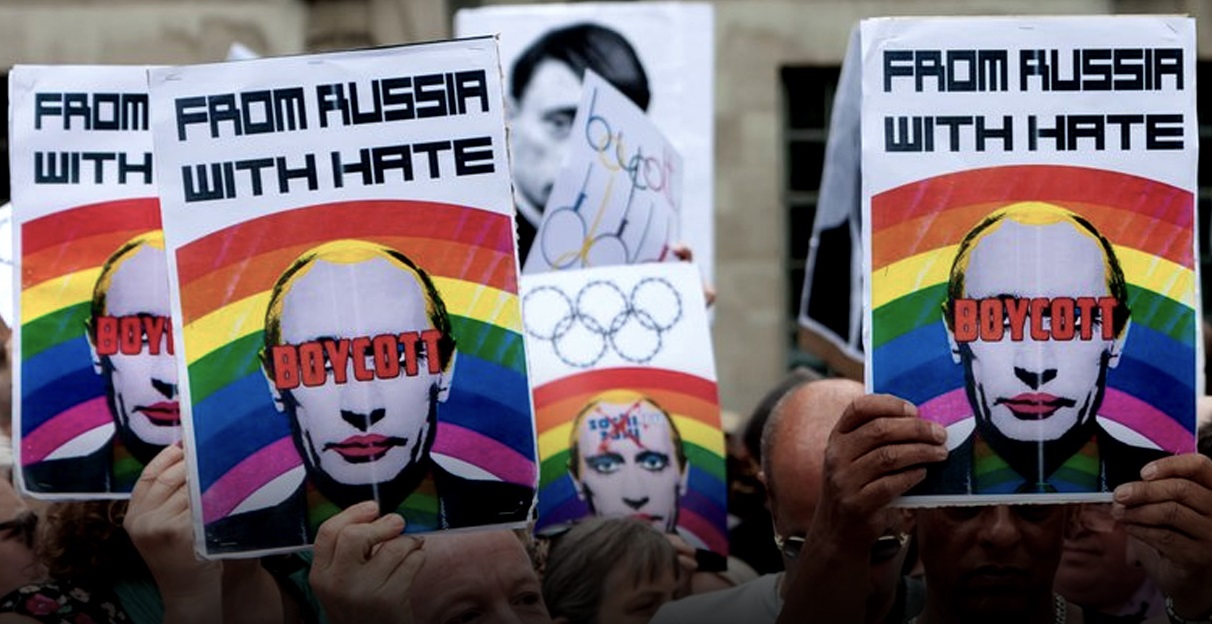
In Latest Move, Russia Adds LGBTQ
Government to Official List of Extremists and Terrorists
Russian Supreme Court Bans LGBTQ Movement and Labels it an
Extremist Organization
Top Russian Court Bans LGBTQ Movement as Extremist
Russia Bans LGBTQ Activism, Declaring It an Extremist
Movement
Russian Supreme Court Bans LGBTQ movement, Labels It
Extremist
Russia Outlaws LGBTQ Rights Movement
Russian President Signs Legislation Outlawing
Gender-Affirming Procedures
Russia Wants to Ban All Trans Healthcare and Gender
Recognition
A gay St. Petersburg city councillor, Sergei Troshin,
tells the BBC that the ban will have disastrous effects on
the LGBTQ community. "I think this will mean that anyone
whom the state considers an LGBTQ activist could receive a
long prison sentence for 'participating in an extremist
organization'." According to Troshin, there is a lot of
panic in the Russian LGBTQ community and people are
fleeing the country in haste. Russian LGBTQ organizations
write that LGBTQ people are massively deleting their posts
on social media and dating apps.
The future is therefore presented bleakly by Russian LGBTQ
organizations: “People with homophobic views now feel at
ease. And the prospects are bleak: people are returning
from war, and that is also a threat to LGBTQ people,” says
the coordinator of a Russian LGBTQ organization.
Independent Russian media, which often operate from
abroad, have adapted their logo with rainbow colors as a
statement of support for the Russian LGBTQ community. This
also includes the independent TV Rain, which currently
operates from the Netherlands. They say: “We will continue
to defend the rights of those who are wrongfully
persecuted.”
[Source: Out TV,
December 2023]
Russia to Outlaw LGBTQ Rights Movement
Gay Couple in Nepal Becomes First
to Officially Register for Same-Sex Marriage in
the Country
John Nicolson MP Warns Scotland Faces Explosion
of Imported Transphobia From US
Places Where Showing LGBTQ Pride
Is Illegal
First Trans Woman Crowned Winner of Miss
Netherlands
London Mayor Sadiq Khan announces LGBTQ Homeless
Shelter Funding
Thousands Hit the Streets of London to Celebrate
Pride
Senator David Norris: The Man Who Overturned
Ireland’s Homosexuality Ban
Pride in London Unveils Powerful
New ‘Never March Alone’ Campaign
Uganda Passes a Law Making it a Crime to
Identify as LGBTQ
Anti-LGBTQ Crackdown Worsens in Tanzania
From Northern Ireland
with Pride: An Interview with Brian
Kennedy
Gen Z Twice as Likely to
Identify as LGBTQ in England and Wales
Trans People Protest Against UK
Government Blocking Scottish Gender Bill
Famous LGBTQ People From France
Gabriel Attal - Prime Minister
Gerard Araud - France Ambassador to US
Sophie Arnould - Opera Singer
Olivier Ducastel - Film Director, Screenwriter
Christophe Beaugrand - Television Journalist
Marcel Carne - Film Maker
Christian Dior - Fashion Designer
Celine Sciamma - Film Director, Screenwriter
Caroline Fourest - Writer, Filmmaker
Jean-Paul Gaultier - Fashion Designer
Guillaume Pepy - Government Official
Ines-Loan Rau - Transgender Playboy Model
Jean-Pierre - TV/Radio Food Critic
Yves Saint Laurent - Fashion Designer
Thierry Schaffauser - Actor, Writer, Activist
Chevalier d’Éon - Transgender Spy (18th Century)
Sidonie-Gabrielle Colette - Author
Activists Link US Nonprofit to Anti-LGBTQ Laws Across
Africa
Xavier Espot Zamora Prime Minister Of
Andorra Comes Out
Man Faces Death Penalty for Violating
Uganda’s Anti-Gay Law
Estonia Becomes First Ex-Soviet State to
Legalize Same-Sex Marriage
Kenya’s Controversial Anti-Homosexuality
Law: Fight for LGBTQ Rights
UN Steps Up Efforts Against Anti-LGBTQ
Violence and Discrimination
European Union Takes Hungary to Highest Court Over LGBTQ
Violations
Congolese Government Cautions Media Not to Promote
LGBTQ-Specific Content
Passing the Fields: Gay
French Film
Helpful Guide: French LGBTQ Vocabulary
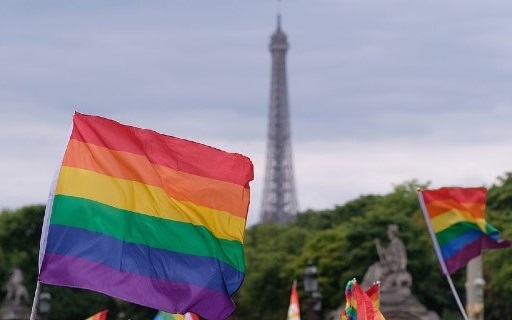
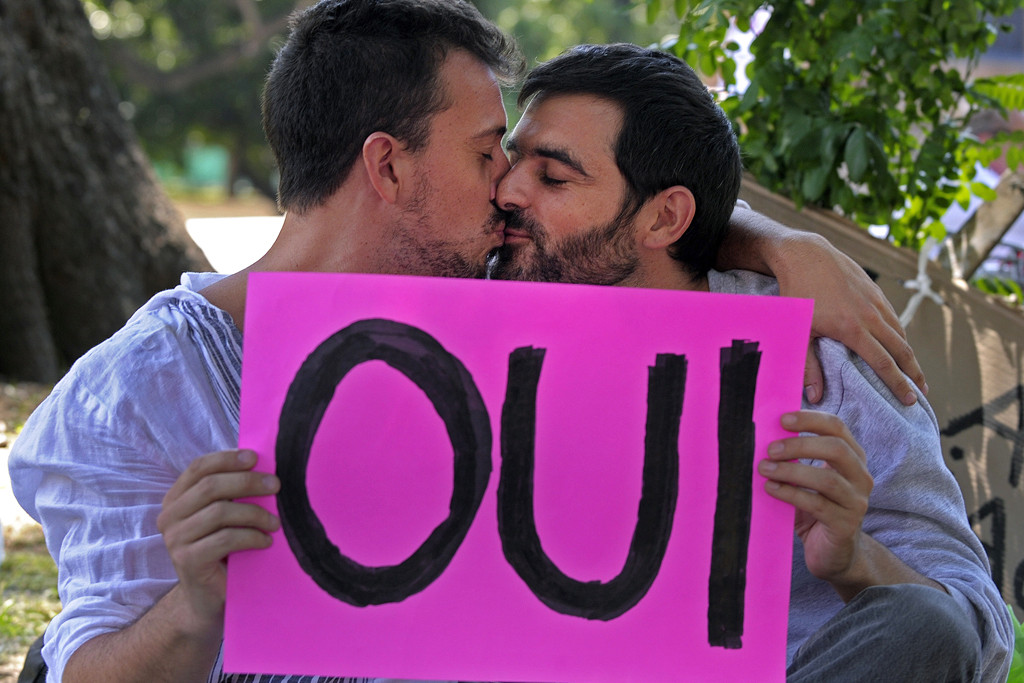
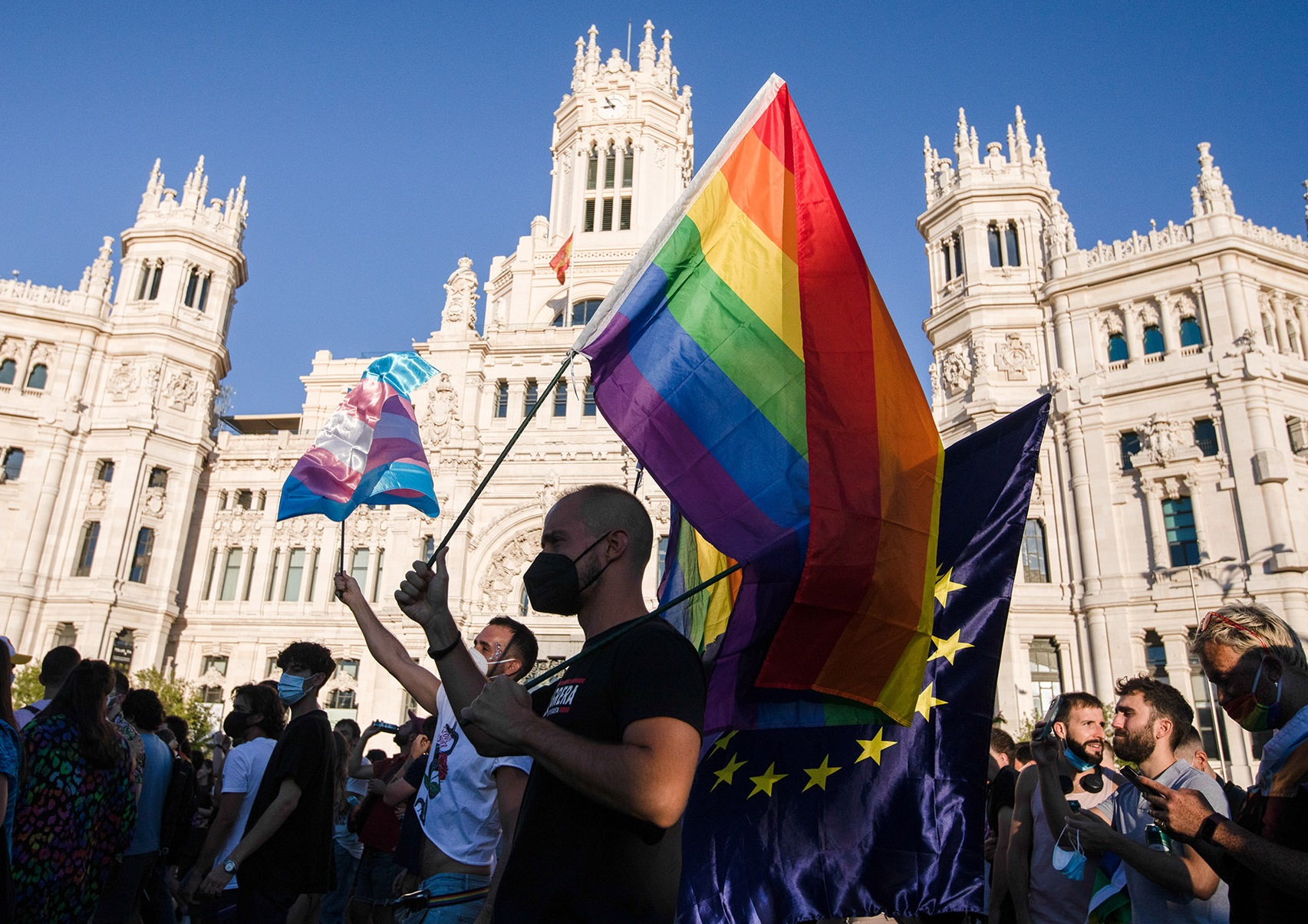
Gay Europe
Current
LGBTQ Situation
In
general, the LGBTQ situation in Europe has been marked
by significant progress in terms of legal recognition
and societal acceptance, but challenges and variations
persist across different countries.
Many European nations have made strides in recognizing
and protecting the rights of the LGBTQ community.
Several countries have legalized same-sex marriage, and
anti-discrimination laws have been enacted to safeguard
LGBTQ individuals in various aspects of life, including
employment and housing. Additionally, some countries
have taken steps to recognize and legally support
individuals who identify as non-binary or transgender.
However, the situation is not uniform across the
continent. Eastern European countries, in particular,
have shown varying levels of acceptance, with some
facing criticism for policies that may be perceived as
discriminatory or regressive. The divide in attitudes
and legal frameworks between Western and Eastern Europe
has underscored the diverse cultural, social, and
political landscapes within the continent.
Moreover, despite legal advancements, challenges persist
in terms of societal acceptance and attitudes. LGBTQ
individuals may still face discrimination, prejudice,
and violence in some communities. Initiatives promoting
education and awareness have been crucial in challenging
stereotypes and fostering inclusivity.
The LGBTQ rights situation in Europe is dynamic, and
developments may have occurred since my last update. It
is essential to consider the intersectionality of LGBTQ
issues with other social, cultural, and political
factors when examining the situation in any specific
country or region. Overall, Europe continues to navigate
the complexities of achieving comprehensive LGBTQ rights
and inclusion while respecting the diversity of its
member states.
Rainbow River at Norwich Pride in UK
Belgrade EuroPride: The Most Important in Our History
Australia, Europe, Asia Host Vast Array of LGBTQ Leaders
Paris Hosts Gay Games
Homophobic Assaults Reported After Berlin's Pride
Celebrations
Most Gay-Friendly Countries In Europe
Pride in London 2018
Uganda Passes New Version of Horrific Anti-LGBTQ Law
Germany Bans Gay Conversion Therapy
UN Steps Up Efforts Against Anti-LGBTQ
Violence and Discrimination
Granddaughter of Italian Fascist Mussolini Speaks Out
for LGBTQ Rights
Most Gay-Friendly Countries In Europe
Tblisi's First LGBTQ Pride Celebration
Mr. Gay Hungary
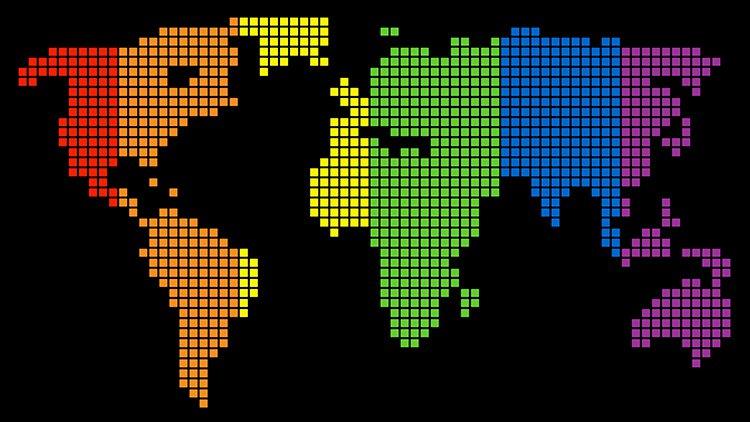
In Latest Move, Russia Adds LGBTQ Govement
to Official List of Extremists and Terrorists
Activists Link US Nonprofit to Anti-LGBTQ Laws Across
Africa
Russia to Outlaw LGBTQ Rights Movement
Gay Couple in Nepal Becomes First to
Officially Register for Same-Sex Marriage in the Country
Which Countries Still Criminalize Gay
Sex?
Nepal Supreme Court Pushes for Gay Marriage
Turkey’s President
Erdogan Claims LGBTQ Will Not Emerge
in This Country
Courts Advancing LGBTQ Rights Worldwide
New Russian Law Bans Well-Known LGBTQ Films like Call Me
by Your Name
Trans People Protest Against UK Government Blocking
Scottish Gender Bill
Hungary’s Anti-LGBTQ Laws Create Threatening Environment
For Human Rights
Uganda's President Signs One of the World’s Harshest
Anti-LGBTQ Bills Into Law
“I think this is so so
horrible. We didn’t expect this.
We thought he would be
advised against it.
We are going to be
tortured. We are going to die.”
-Henry
Mukiibi, Activist who assists LGBTQ Ugandans
Uganda’s President Yoweri
Museveni has signed some of the harshest anti-LGBTQ laws
in the world, the speaker of Parliament said, defying
international pressure. The bill includes the death
penalty for “aggravated homosexuality," which includes sex
with a minor, having sex while HIV-positive, and incest.
The bill criminalizes sex education for the gay community
and makes it illegal not to expose what it calls
perpetrators of aggravated homosexuality to the police. It
calls for “rehabilitation” (widely discredited conversion
therapy) for gay offenders.
Museveni sent the bill back to Parliament for revisions
earlier this year. The latest version of the bill passed
earlier this month. Uganda’s longtime president has
already faced extensive criticism from Western
governments, including the US, over the law. A similarly
homophobic law was struck down by the courts in 2014.
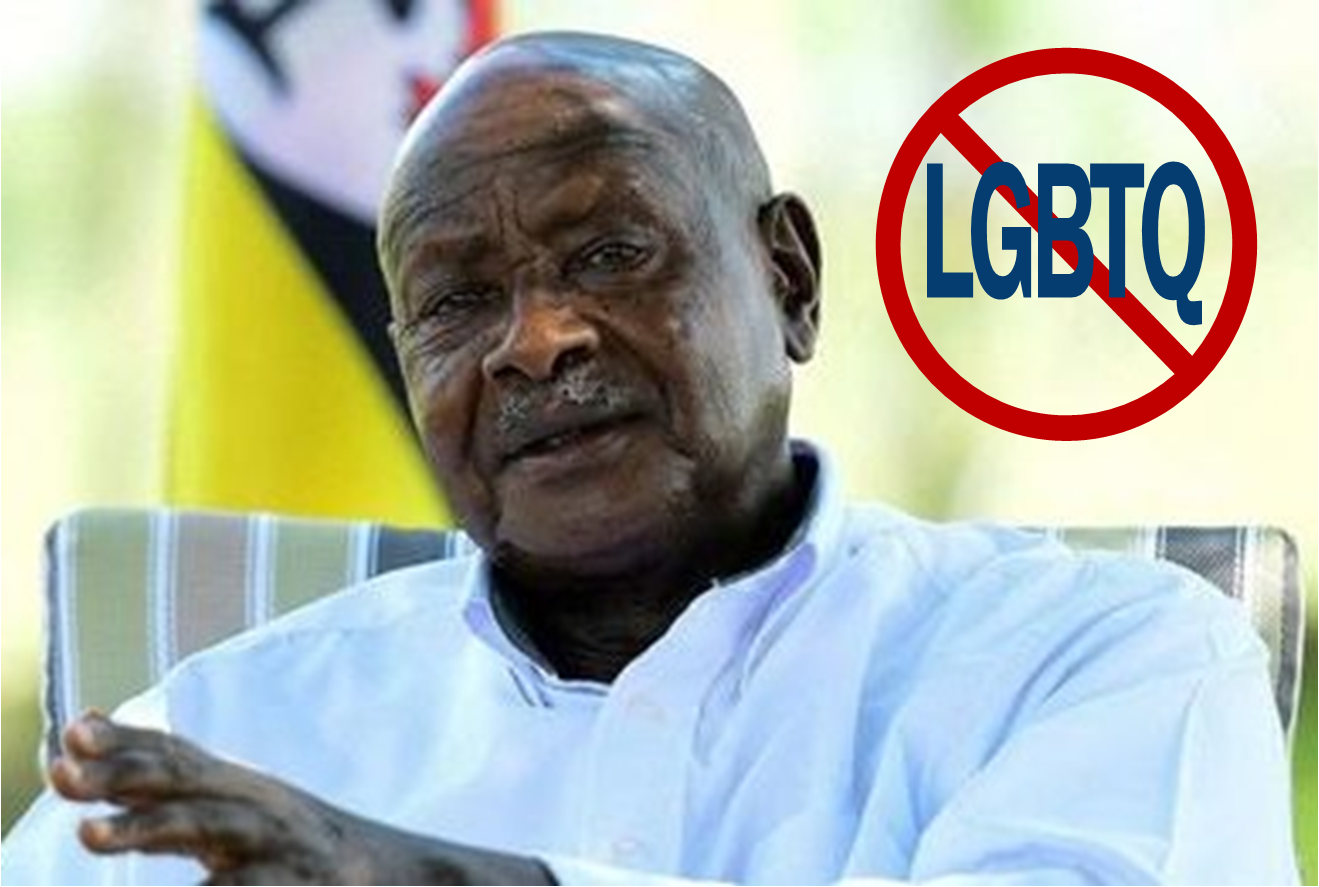
Uganda's President Signs One of the World’s Harshest
Anti-LGBTQ Bills Into Law
Uganda’s President Signs Deadly Anti-Homosexuality Bill
into Law
Uganda's LGBTQ Community In Shock Over New Measure, Gay
Activist Says
Uganda Passes a Law Making it a Crime to
Identify as LGBTQ
Uganda Passes New Version of Horrific Anti-LGBTQ Law
Uganda Passes Anti-Homosexuality Bill Making it Illegal
to Identify as LGBTQ
The speaker of the parliament Anita Annet Among celebrated
the bill’s signing, saying Parliament had “answered the
cries of our people. I thank His Excellency, the
president, for his steadfast action in the interest of
Uganda. With a lot of humility, I thank my colleagues the
Members of Parliament for withstanding all the pressure
from bullies and doomsday conspiracy theorists in the
interest of the country,” she added.
Henry Mukiibi, an activist who assists LGBTQ Ugandans,
says that he fears people will take the law into their own
hands: “I think this is so so horrible. We didn’t expect
this. We thought he would be advised against it. We are
going to be tortured. I am just scared now about what is
next. People have been waiting for the bill to be signed
and then they will work on us. We are going to die.”
Civil society groups are already looking to challenge the
law. “This is hardly surprising for anyone following the
events closely, but it is still deeply concerning that the
country is viciously discriminating against its sexual
minorities. The battle lines are drawn and the next stage
of the contestation will be in a court of law,” Nicholas
Opiyo, a prominent human rights lawyer said. “The
civil society in Uganda together with the LGBTQ community
are prepared to take this to the courts and challenge the
law. Because this law is a deeply discriminatory and
repressive law that doesn’t meet any international human
rights and local standards.” He added that Uganda’s
development partners need to hold the Ugandan government
to account.
[Source: David McKenzie, Eve Brennan, CNN]
Turkey's Erdogan Tells Supporters He Does Not Recognize
LGBTQ People
Xavier Espot Zamora Prime Minister Of
Andorra Comes Out
Police in Ethiopia Beg Public to Snitch on LGBTQ People in
Anti-Homosexuality Crackdown
John Nicolson MP Warns Scotland Faces Explosion of
Imported Transphobia From US
How LGBTQ Youth are Changing Poland’s Conservative Culture
Kenya’s Controversial Anti-Homosexuality Law: Fight for
LGBTQ Rights
Anti-LGBTQ Crackdown Worsens in Tanzania
Thousands Protest Victor Orban’s Bigotry at Budapest Pride
Congolese Government Cautions Media Not to Promote
LGBTQ-Specific Content
Latvia Swears in Edgars Rinkevics: EU's
First Openly Gay President
German Parliament Officially Commemorates LGBTQ Victims
of Nazi Regime for First Time
Update: Ugandan Police Arrest
Four People for Acts of Homosexuality
In Uganda, which has one of the harshest anti-LGBTQ laws
in the world, police arrested four people in August 2023
for “acts of homosexuality” at a massage parlor. The
arrests occurred in Buikwe, a town about 35 miles east of
the capital, Kampala.
“The police operation was carried out following a tip-off
by a female informant to the area security that acts of
homosexuality were being carried out at the massage
parlor,” a police spokesperson said. Two of those arrested
were women.
Uganda adopted the Anti-Homosexuality Act in May 2023. It
provides for the death penalty for what it calls
“aggravated homosexuality,” including sex with a minor,
sex while HIV-positive, and incest. Those convicted of
having same-sex relations that are not of the “aggravated”
variety can be imprisoned for life.
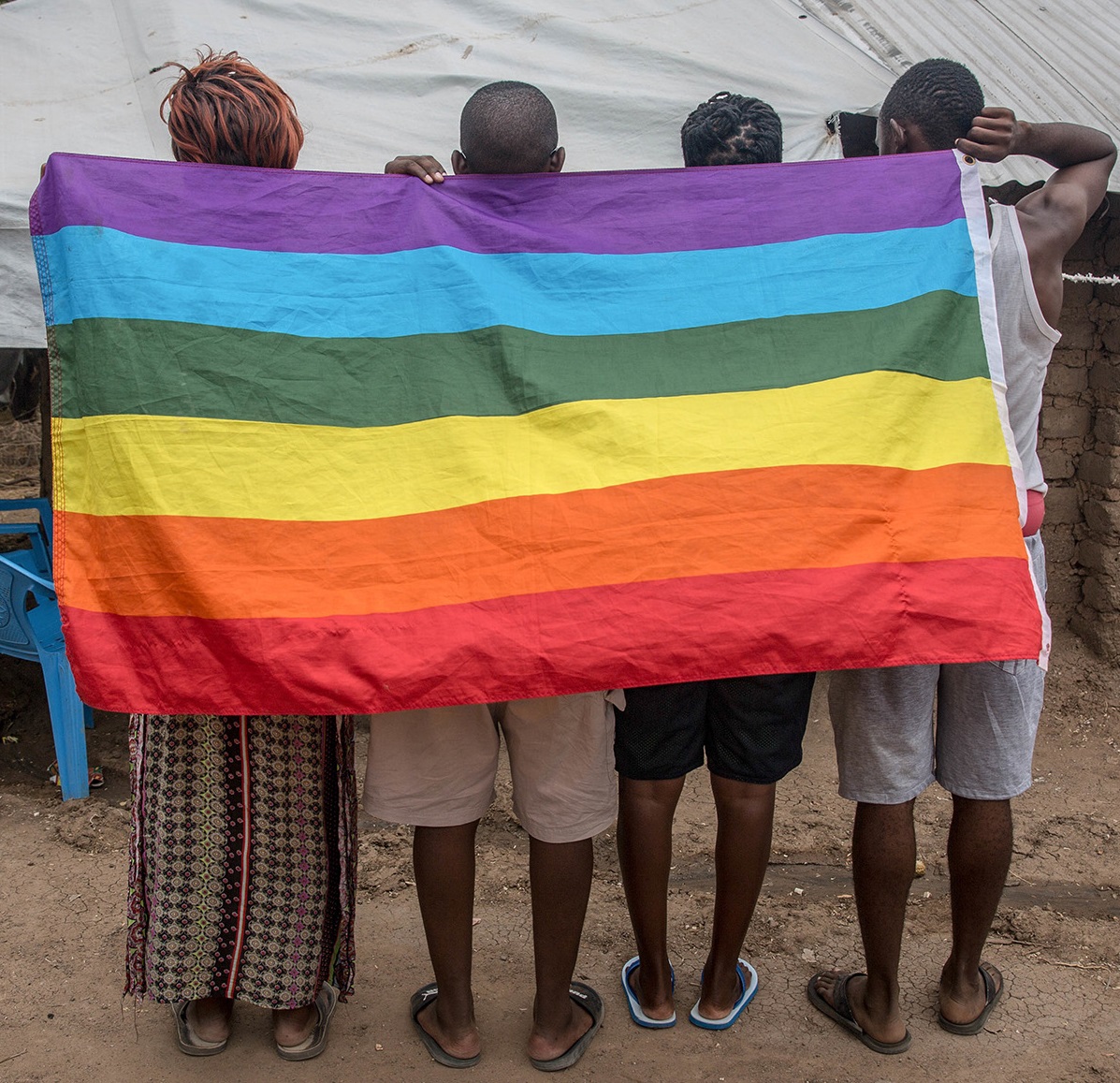
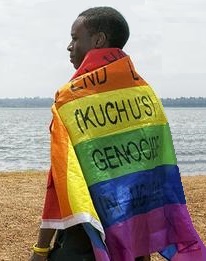
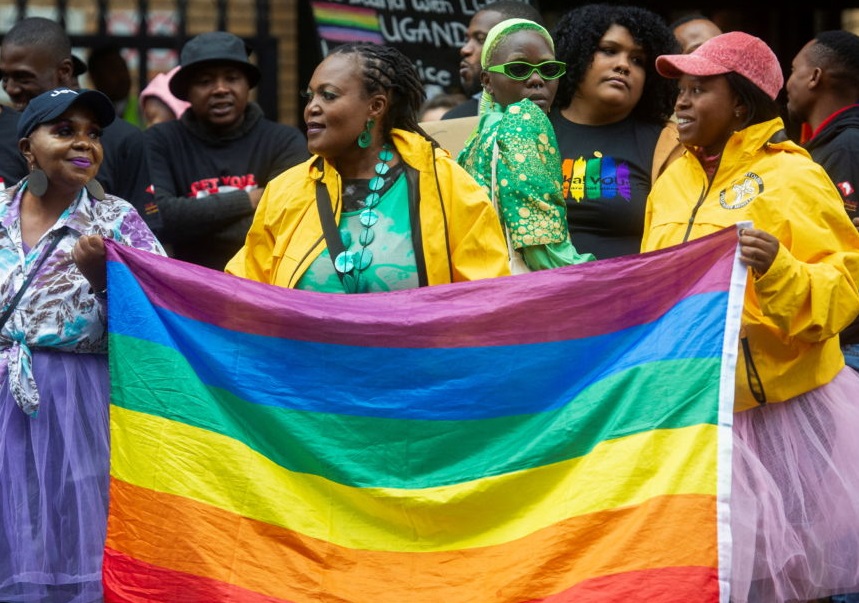
Ugandan Police Arrest Four People for Acts of
Homosexuality
Uganda Enacts Harsh Anti-LGBTQ Law Including Death Penalty
Uganda Leader Signs Law Imposing Life Sentence for
Same-Sex Acts and Death for Aggravated Homosexuality
Where African Countries Stand in Their Struggle Toward
More Inclusive LGBTQ Laws
A previous anti-homosexuality law that did not include the
death penalty, although that was considered when the
measure was discussed by legislators, was struck down in
court in 2014, not because of its content but because of
the manner in which it was passed by Parliament.
The Anti-Homosexuality Act has been condemned by world
leaders, including President Joe Biden, and human rights
groups. Democrats in Congress have pushed for an amendment
to the pending National Defense Authorization Act to
prohibit aid to Uganda’s army or police forces.
In August 2023, the World Bank announced it would provide
no new funding for public projects in Uganda because of
the law. Officials with the bank said they will try to
negotiate “additional measures” to prevent anti-LGBTQ
discrimination in the country. The bank will meet previous
commitments and will consider private-sector loans
selectively, while taking any steps necessary to assure
there won’t be discrimination.
[Source: Trudy Ring,
Advocate, August 2023]
Russia to Outlaw LGBTQ Rights Movement
Activists Link US Nonprofit to Anti-LGBTQ Laws Across
Africa
60,000 March in Annual Prague Pride Parade
Countries That Will Punish You for Being
Gay
34% of Wales is Queer, Report Reveals
Russian President Signs Legislation Outlawing
Gender-Affirming Procedures
London Mayor Sadiq Khan announces LGBTQ Homeless Shelter
Funding
Pride in London Unveils Powerful New ‘Never
March Alone’ Campaign
100 Year Old Polish Actor Comes Out as Gay
Moscow Toughens Anti-Gay Laws: LGBTQ Russians Fear for
the Future
National Conservatism Conference Was as
Anti-LGBTQ as You Might Expect
Finland Ranks 6th in European LGTBQ
Rights Comparison
Anti-LGBTQ Crackdown Worsens in Tanzania
Big Coronation Concert
The King
Charless III Coronation Concert features Take That, Lionel
Richie and Katy Perry as well as an appearance by
Brighton’s Actually Gay Men’s Chorus and The Pink Singers,
London’s LGBTQ community choir. 20,000 people attended the
Coronation Concert at Windsor Castle.
Other performers include bass-baritone Bryn Terfel,
pianist Lang Lang, Andrea Bocelli, Paloma Faith and former
Pussycat Doll Nicole Scherzinger. Tom Cruise, Joan
Collins, Bear Grylls and Tom Jones appear in pre-recorded
video sketches. They recited little-known facts about the
monarch. Additionally, the Royal Ballet, Royal Opera,
Royal Shakespeare Company, Royal College of Music and
Royal College of Art combined to present a spectacular
one-off performance.
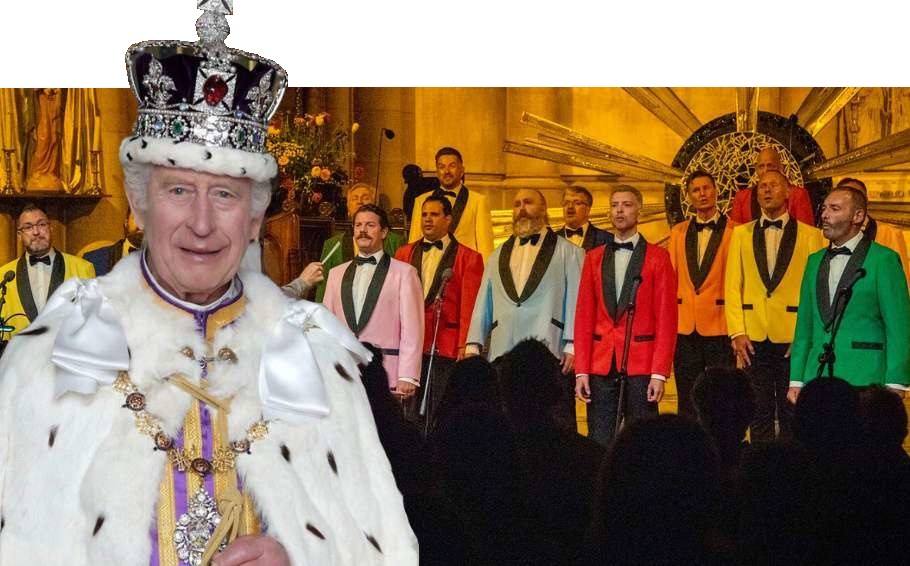
Who appeared at the Coronation Concert?
Will King Charles III Address LGBTQ Rights?
As King Charles III is Crowned, Will he Address LGBTQ
Rights?
King Charles Coronation: Time for Royals to Face Up to
Britain’s Anti-LGBTQ Colonial Legacy
The 300-voice Coronation Choir combines chorists from 18
community and amateur choirs in a special ensemble for the
Coronation Concert. Concert organizers chose refugee, NHS,
LGBTQ and deaf-signing choirs for the ensemble after a
nationwide search earlier this year.
Brighton’s Actually Gay Men’s Chorus and London’s The Pink
Singers will both participate. Sadly, despite exploiting
queer musical groups to burnish his progressive
credentials, King Charles III has never yet made a single
comment on queer issues.
[Source: Destiny Rogers, Q News, May 2023]
Gay Kings and Queens of Europe
Granddaughter of Italian Fascist Mussolini Speaks Out
for LGBTQ Rights
Poland May Start Sending Teachers to Jail for Turning
Kids Gay
Tutorial: French Kiss
Lesbian Couple in Italy Wins Right Not to Be Identified
as Mother and Father on Government Docs
King Charles III and New Prince of Wales: Royals'
Attitude About LGBTQ Rights
Queen had Understanding of LGBTQ Community, Says Gay
Former Lord Mayor
Never March Alone: Pride in London 2023
German Lawmakers Vote to Legalize Same Sex Marriage
First Transgender Woman to Compete in Miss Universe
Pageant
Duas Noivas Lindas: Casamento Budista
LGBTQ Pride in Serbia
Je
Suis Lesbienne
New Russian Law Bans Well-Known LGBTQ
Films like Call Me by Your Name
The purge of films, including
Brokeback Mountain, began in 2022
A government committee regulating
compliance with the new anti-LGBTQ law
in Russia has issued a list of criteria
for banning content online and in the
media, and several notable film titles
have disappeared from streamers in the
country.
The Russian language news outlet
Vedomosti reports that the new rules
from the Roskomnadzor (RKN) ban any
content that affirms “nontraditional”
sexual relations or relationships,
forbids affirmation of transgender and
nonbinary people, and bans any attempts
to speak in support of the LGBTQ
community.
The RKN had earlier sent a list of films
and TV shows it classified as LGBTQ
propaganda and in violation of the new
law. The list included the films
Brokeback Mountain (2005) and Call Me By
Your Name (2017), as well as episodes
from TV shows The Sex Lives of College
Girls and This Is Going to Hurt.
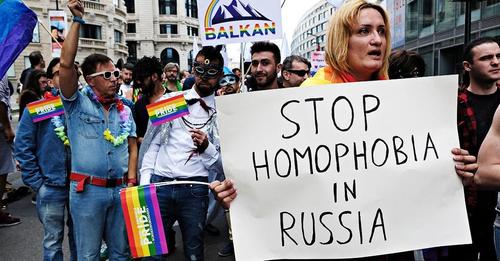
New Russian Law Bans Well-Known LGBTQ
Films like Call Me by Your Name
Moscow Toughens Anti-Gay Laws: LGBTQ Russians Fear for
the Future
Putin Vows to Never Allow Same-Sex Marriage in Russia
New Survey Shows 1 in 5 Russians Want to Eliminate LGBTQ
Community
Russian Post-Invasion Kill List Includes
Ukrainian LGBTQ Citizens
Russian President Signs Legislation
Outlawing Gender-Affirming Procedures
Alexander Khinshtein, a member of the
State Duma and coauthor of the
censorship law, told Vedomosti he held
two meetings with the top managers of
three major streaming services in the
country last December, where he
delivered the criteria list and
discussed its implementation. The group
also reportedly agreed on a short
transitional period for the streamers to
remove content now considered illegal
under the new law.
The news of the committee's list was
condemned by Amnesty International's
Russia chapter. “This unabashed
censorship shows that the Russian
authorities are wholly out-of-step with
human rights, willing to blatantly
violate the right to freedom of
expression. Disguised as 'protecting
traditional values,' this outrageous
move will not only further stigmatize
millions of LGBTQ people but expose them
to increasing discrimination and stigma,
hostility, and violent acts," Natalia
Zviagina, Amnesty International’s Russia
Director, said. "This censorship
directive, not to mention the anti-LGBTQ
law itself, must be immediately
repealed. It’s time for Russia to stop
promoting and endorsing discrimination
against LGBTQ people and understand and
recognize that their rights are human
rights, and protect them.”
The new law expanded a 2013 ban against
spreading “propaganda of nontraditional
sexual relations” to minors to also
include adults. The new law took effect
December 5 and makes it illegal to
promote or “praise” LGBTQ relationships,
publicly express non-heterosexual
orientations, or suggest that they are
“normal.” The new law also bans all
advertising, media, and online resource
books, films, and theater productions
that affirm the LGBTQ community or
individuals.
Under the new law, individuals can be
fined up to 400,000 rubles ($6,370) for
"LGBTQ propaganda" and up to 200,000
rubles ($3,185) for “demonstrations of
LGBTQ and information that encourages a
change of gender among teenagers.”
[Source: Donald Padgett, Advocate, Jan
2023]
Places Where Showing LGBTQ Pride Is
Illegal
In Latest Move, Russia Adds LGBTQ
Govement to Official List of Extremists and Terrorists
Turkey's Erdogan Tells Supporters He Does Not Recognize
LGBTQ People
John Nicolson MP Warns Scotland Faces Explosion of
Imported Transphobia From US
Kenya’s Controversial Anti-Homosexuality Law: Fight for
LGBTQ Rights
Anti-LGBTQ Crackdown Worsens in Tanzania
Estonia Set to Become First Baltic State
to Legalize Same-Sex Marriage
Congolese Government Cautions Media Not to Promote
LGBTQ-Specific Content
Uganda Passes Anti-Homosexuality Bill Making it Illegal
to Identify as LGBTQ
Finland Ranks 6th in
European LGTBQ Rights Comparison
Spain Passes Law Allowing Trans People
to Self-Identify From Age 16
European Rainbow
Map Update
Ranking
LGBTQ-Friendly Countries Worldwide
The annual
Rainbow Map ranking has named Malta as the best nation
for LGBTQ rights in Europe for the eighth year in a row,
while the UK’s score continues to fall.
ILGA (International Lesbian, Gay, Bisexual, Trans and
Intersex Association) Europe’s Rainbow Map and Index has
ranked European countries on the basis of their “legal
and policy situation” for LGBTQ people each year since
2009. The index ranks countries from zero to 100 per
cent, with zero representing gross violations of human
rights, and 100 representing full equality. Countries
are marked in seven categories: equality and
non-discrimination, family, hate crime and hate speech,
legal gender recognition, intersex bodily integrity,
civil society space, and asylum.
The 2023 list placed Malta top, with a score of 89 per
cent.
Rising in the ranks to fourth place was Spain (74 per
cent), which ILGA-Europe said was due to the country’s
ground-breaking introduction of a self-ID law for trans
people.
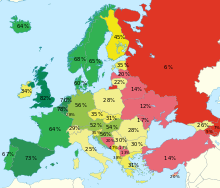
Social Acceptance of LGBTQ People in 175 Countries
LGBTQ Quality of Life: Major World Cities Ranked
Rainbow Europe: LGBTQ Friendly Countries Ranked
Best and Worst Countries for LGBTQ Folks in Europe
New LGBTQ Safety Report Ranks Trans Friendly Travel
Destinations
Until 2015, the UK consistently achieved the number-one
spot in the rankings, but since then has slipped down
the list. It was down in 10th in 2021 before falling to
14th in 2021. This year, the country dropped further
still and now sits in 17th place.
The worst countries for LGBTQ people in Europe are
Azerbaijan (two per cent), Turkey (four per cent), and
Armenia (eight per cent). Those three countries have
retained the bottom three places for the past three
years.
The
Rainbow Europe Map, developed by ILGA, utilizes a 100
point scale and tracks 49 countries. Here is their top
20 list:
|
1
Malta
2 Belgium
3 Denmark
4 Spain
5 Finland
 |
6
Iceland
7 Sweden
8 Norway
9 Luxembourg
10 France 1
 |
11
Portugal
12 Montenegro
13 Greece
14 Netherlands
15 Germany
 |
16
Ireland
17 United Kingdom
18 Croatia
19 Austria
20 Switzerland
 |
In a
similar study, the Williams Institute at UCLA School of
Law ranks 175 countries worldwide according to their
average LGBTQ Acceptance Index score. They utilize a 10
point scale. Here is their list of the top 20 countries
ranked for LGBTQ Social Acceptance:
|
1
Iceland
2 Netherlands
3 Norway
4 Sweden
5 Canada
 |
6
Spain
7 Denmark
8 Ireland
9 Great Britain
10 New Zealand
 |
11
Australia
12 Malta
13 Switzerland
14 Finland
15 Belgium
 |
16
Uruguay
17 Nepal
18 Luxembourg
19 France
20 Germany
 |
[Source:
Williams Institute, Pink News, ILGA Europe, May 2023]
Trans People Protest Against UK
Government Blocking Scottish Gender Bill
Turkish Police Break Up LGBTQ Pride March
Russian Post-Invasion Kill List Includes
Ukrainian LGBTQ Citizens
France Outlaws Discredited Practice of LGBTQ Conversion
Therapy
How the World Feels About LGBTQ People
Japanese Court Rules
Same-Sex Marriage Ban is Unconstitutional
LGBTQ Europeans: Over Half
Are Not Out
Switzerland Approves Same-Sex Marriage
In Nationwide Referendum
Worst Year for LGBTQ Rights in Europe
Netherlands Celebrates 20 Year
Anniversary of First Same-Sex Marriage
Rising LGBTQ Bigotry in Europe Spurs EU to Action
GCN: Gay
Community News (Ireland)
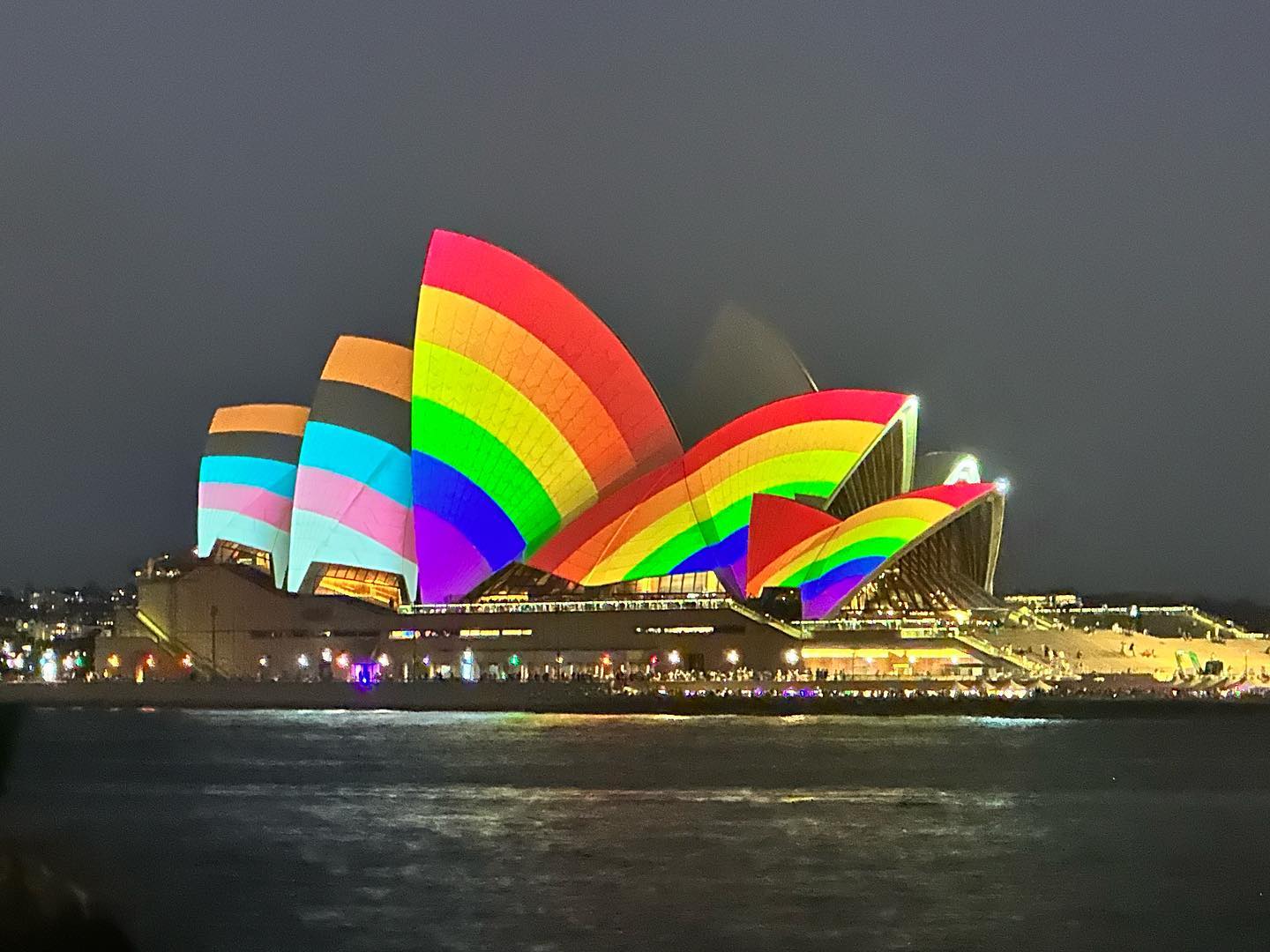
Sydney World Pride
Over 60 Shows, Exhibits,
Experiences...
WorldPride is a global LGBTQIA festival
that has been staged since 2000, with
cities competing to host the event.
The right to host it is licensed by
InterPride which has representatives
from nearly every Pride organization
around the world. Previous WorldPride
celebrations include New York in 2019
marking 50 years since the Stonewall
uprising, and Copenhagen in 2021
celebrating both WorldPride and the
EuroGames.
Sydney World Pride
Sydney Gay and Lesbian Mardi Gras
InterPride
Sydney was chosen by InterPride members
to be the host of WorldPride in 2023,
marking the first time a city in the
southern hemisphere had been chosen.
Sydney WorldPride will incorporate all
the beloved Sydney Gay and Lesbian Mardi
Gras events, plus a broad festival
offering across arts, sport, theatre,
concerts, parties, First Nations
programming and a human rights
conference.
The First Nations gathering, called Marri Madung Butbut, is the largest
Aboriginal and Torres Strait Islander
and global First Nation LGBTQIA+SB
program to take place in Australia.
Police in Ethiopia Beg Public to Snitch
on LGBTQ People in Anti-Homosexuality
Crackdown
Countries That Will
Punish You for Being Gay
How LGBTQ Youth are Changing Poland’s
Conservative Culture
London Mayor Sadiq Khan announces LGBTQ
Homeless Shelter Funding
Princess Mary Calls for LGBTQ Equality
at Copenhagen WorldPride
Gay Marriage Now Legal in Northern Ireland
First Trans Woman Crowned Winner of Miss
Netherlands
Thousands Hit the Streets of London to
Celebrate Pride
Romanian Courts Rule LGBTQ Couples Should Have Legal
Protection
Proud Dads Going to Dublin LGBTQ Pride Festival with
Their Gay Sons
Pride Celebration in Rio de Janeiro
Northern Ireland News: First Same Sex Marriages on
Valentine's Day
Granddaughter of Italian Fascist Mussolini Speaks Out
for LGBTQ Rights
Slovenia Becomes First Eastern European Country to
Recognize Same-Sex Marriage
Gay Man Elected as President of Latvia
Georgina Beyer, First Out Trans MP in
World History, Dies at 65
Uganda Passes a Law Making it a Crime to
Identify as LGBTQ
Which Countries Still Criminalize Gay
Sex?
Nepal Supreme Court Pushes for Gay Marriage
First Openly Gay Lord Mayor
Carl Austin-Behan Served as Lord Mayor
of Manchester from 2016 to 2017
Manchester’s first openly gay lord mayor
says the Queen showed a “genuine”
interest in the LGBTQ community when
they met in 2021.
The Queen, who died in September 2022,
didn’t make her views on LGBTQ rights
known to the public throughout her
70-year reign. It’s something that
leaves a bitter taste in the mouths of
many, especially considering the crown’s
involvement in colonial, anti-LGBTQ laws
around the world. But Carl Austin-Behan,
who served as lord mayor of Manchester
from 2016 to 2017, has vouched for the
late monarch, saying she had an interest
in and understanding of the community.
In July 2021, Queen Elizabeth II visited
Manchester. Ahead of this, Austin-Behan
said, he was contacted by the Queen’s
lord-lieutenant to request that an LGBTQ
choir perform during a service at
Manchester Cathedral. Austin-Behan
forwarded the request to the Manchester
Lesbian and Gay Chorus – recently
renamed Manchester Proud Chorus.
“I think it was really poignant to ask
for an LGBTQ choir as she’s head of the
church and in Greater Manchester we have
a lot of multicultural faith, and there
we were with all the different faith
leaders and people from different
backgrounds there with an LGBTQ choir
performing,” he said. “It sent a very
clear message of how she did understand
and that she recognized us as a
community.”
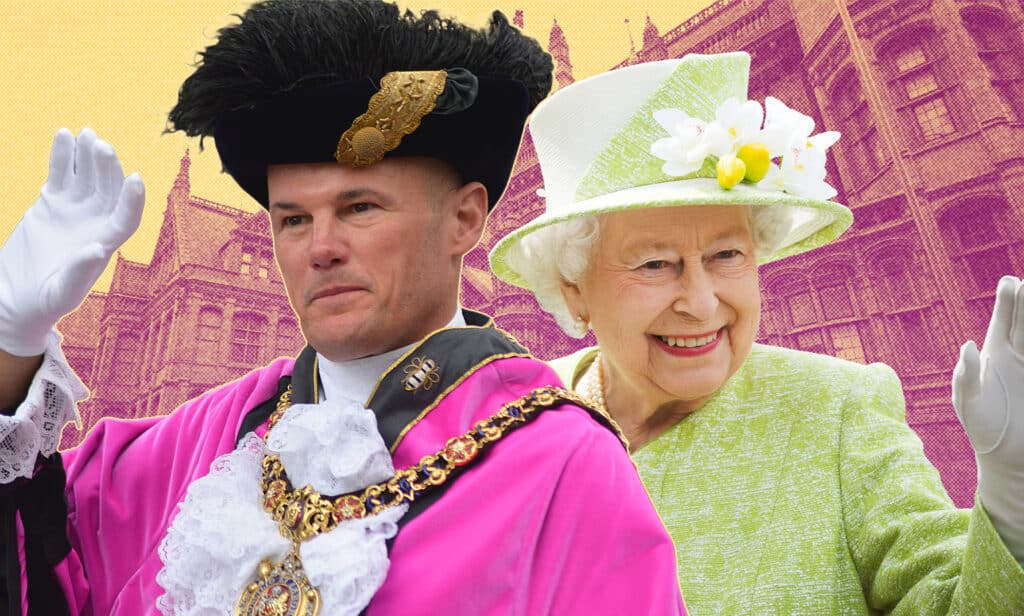
King Charles III and New Prince of Wales: Royals'
Attitude About LGBTQ Rights
Queen had Understanding of LGBTQ Community, Says Gay
Former Lord Mayor
Maureen Duffy is Britain's First Out Woman in
Public Life
Veteran LGBTQ Humanist Activist
George Broadhead Dies
Queen of England's Gay Cousin Got Married
Gay Kings and Queens of England
He recalled the lord-lieutenant
introducing him as the former lord
mayor, and the Queen interrupting to say
“you look very young for a lord mayor”.
The 50-year-old said the Queen showed a
keen interest in learning about the
LGBTQ charities in Manchester, and about
the work of Fighting With Pride (FWP) –
a military charity which works to
support LGBTQ veterans, serving
personnel and their families, which he’s
a trustee of.
“She acknowledged that Greater
Manchester had a very large LGBTQ
community. And then I mentioned about
being kicked out of the RAF for being
gay in ’97 and she said ‘we’ve had a lot
of changes over the last 20 years’.
“She acknowledged that we had come a
long way in that time and mentioned
LGBTQ people in the military, same-sex
marriage and being able to have
children, she was knowledgeable.”
“She knew Greater Manchester had a large
LGBTQ+ community and the importance of
it.
“I felt it was genuine and sincere and
her understanding was beautiful.”
Austin-Behan joined the Royal Air Force
(RAF) at the age of 19, but was kicked
out in 1997 for being gay. The ban on
LGBTQ people serving openly in the
military wasn’t lifted until 2020. Those
suspected of being LGBTQ were arrested,
searched and questioned, and those found
‘guilty’ were ‘dismissed in disgrace’.
While Austin-Behan “didn’t want being
gay to define” him, he said: “Being
kicked out the RAF ended up defining me,
because I’ve ended up getting involved
with LGBTQ rights from when that
happened.” Prior to his discharge from
the army, Austin-Behan was commended in
the 1991 Queen’s Birthday Honors for
saving a pilot from a burning aircraft.
He’s now the current LGBTQ advisor to
the mayor of Greater Manchester, and in
2020 the Queen made him an Officer of
the Order for the British Empire (OBE)
for his charity work towards LGBTQ
equality.
[Source: Chantelle Bilson, Pink News,
Sept 2022]
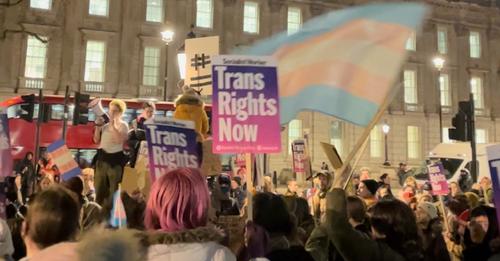
World LGBTQ News
Poland: How LGBTQ Youth are Changing the
Country’s Conservative Culture
Greece: Homophobic Homeowner Refuses to
Help Gay Family Fleeing Wildfire
Russia: Putin Signs Legislation
Outlawing Gender-Affirming Procedures
Turkey: Thousands Protest Victor Orban’s
Bigotry at Budapest Pride
Italy: Over 40% of LGBTQ Workers Say
Careers Have Been Hit by Discrimination
England: Trans People Protest Against UK
Government Blocking Scottish Gender Bill
France: Outlaws Discredited Practice of LGBTQ Conversion
Therapy
Africa: Gay Sex Is Legal
in Botswana, Affirms Appeals Court
Ukraine: Thousands March for LGBTQ
Rights
Germany Two Transgender Women Win Seats in Parliament
Netherlands: 20 Year
Anniversary of First Same-Sex Marriage
Bavaria: Duke François
Comes Out as Gay at 87
Switzerland: Approves Same-Sex Marriage
In Nationwide Referendum
Japan: Court Rules
Same-Sex Marriage Ban is Unconstitutional
England: Veteran LGBTQ Humanist Activist
George Broadhead Dies
Hungary: Proposes Ban on Material Promoting LGBTQ
Activity Among Youth
Scottland: Politician Says
Same-Sex Marriage is the Cause of COVID 19
Ghana: Politicians Move to Ban All LGBTQ
Advocacy
Ireland: Incredible Transformation Into an LGBTQ Haven
Greece: Appoints First Out
Gay Cabinet Minister
Germany: Making it Easier for Lesbian Couples to
Co-Parent
Hungary: Ramps Up Assault
on LGBTQ Community and Bans LGBTQ Rights
How the World Feels About LGBTQ People
One of the major human rights stories of
the past decade in the United States has
been the astonishing progress toward
equality for lesbian, gay, bisexual,
transgender, and queer people. The
advance of marriage equality across the
states before the Supreme Court made it
the law of the land; the narratives of
bullying and suicide that aroused public
sympathy; and the swift rise in the
visibility of transgender people have
been tremendously gratifying and
exciting to witness.
But while the United States can be
awfully myopic, it’s impossible to
ignore that this progress hasn’t been
global. Sexual minorities in Uganda have
been attacked with greater frequency
since the country passed a law creating
a new range of offenses related to
sexual orientation, pairing them with
correspondingly harsh penalties. Russia
criminalized so-called “gay propaganda”
as part of widespread government efforts
to clamp down on free speech supposedly
in defense of traditional Russian
culture. And earlier this year, two gay
rights activists were killed in
Bangladesh.
In this context, it’s particularly
interesting to read the results of a
study released today by ILGA and Logo
and conducted in conjunction with RIWI,
a Canadian research company that has
made a specialty of public opinion
research in countries where it’s
difficult to do traditional polling. The
results from 96,331 respondents in 65
countries provide a broad — if not
necessarily complete, because the
surveys were conducted online — look at
how the world feels about LGBTQ people.
And it also suggests ways that gay
rights movements around the world might
advance in directions different from the
one in the United States.
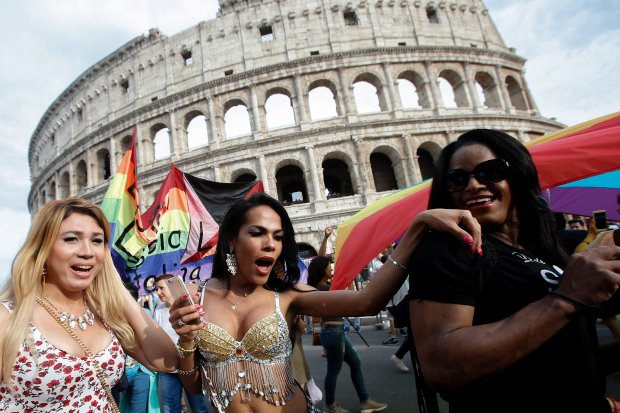
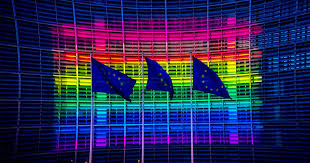
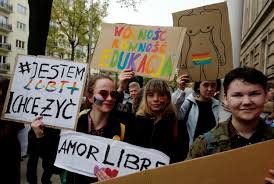
Russia to Outlaw LGBTQ Rights Movement
The World's Happiest Countries Protect Their LGBTQ
Citizens
Top Ten
Best Worldwide LGBTQ Pride Festivals
Putin Vows to Never Allow Same-Sex Marriage in Russia
The Future
Is Not In Front of Us, It's Inside of Us
Europe Becoming More Tolerant: Positive Side Effects
Countries That Will Punish You for Being
Gay
Outlawed: Anti-LGBTQ Laws Around the World
Gay Pride in Berlin
Most Gay-Friendly Countries In Europe
Russian Post-Invasion Kill List Includes
Ukrainian LGBTQ Citizens
France Outlaws Discredited Practice of LGBTQ Conversion
Therapy
How the World Feels About LGBTQ People
First, the broad picture: Thirty-five
percent of respondents worldwide said
that their attitudes about gay, lesbian,
transgender and intersex people had
become much more favorable or somewhat
more favorable over the past five years.
Fifteen percent said their feelings had
become less favorable, and 50 percent
reported no change. Sixty-seven percent
agreed with the statement that “human
rights should be applied to everyone,
regardless of whom they feel attracted
to or the gender they identify with.”
Just 16 percent disagreed.
In no region of the world do a clear
majority of respondents agree that
“being gay, lesbian, bisexual,
transgender, or intersex should be a
crime,” though 42 percent of respondents
in the Middle East and North Africa, and
43 percent of respondents in other
African countries, said that being a
sexual minority, transgender or intersex
should be illegal. And 68 percent of
respondents around the world said that
they would be very or somewhat upset if
their child said they were in love with
someone of the same gender, though it’s
hard to determine whether that response
comes from opposition to homosexuality
or concern for a child’s safety and
acceptance.
Figures like these remind us of what we
already know: that gay rights movements
around the world are operating in vastly
different cultural and political
environments and have achieved varying
levels of success and visibility. And
it’s particularly interesting to look at
the responses to the questions that ask
respondents of other countries about
subjects that provided powerful leverage
for LGBTQ rights movements in the United
States.
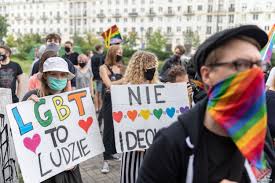
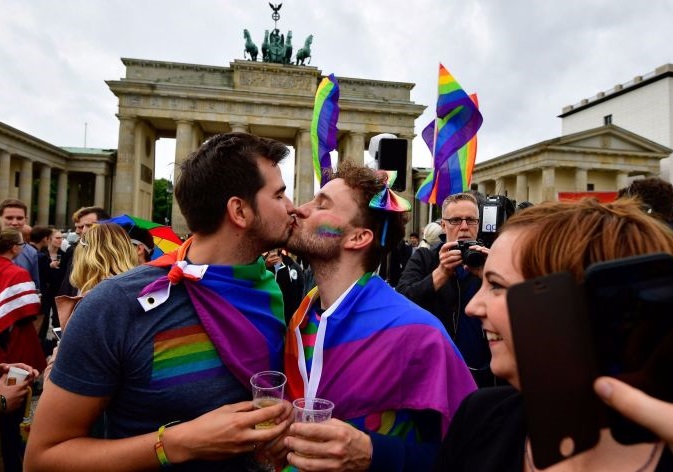
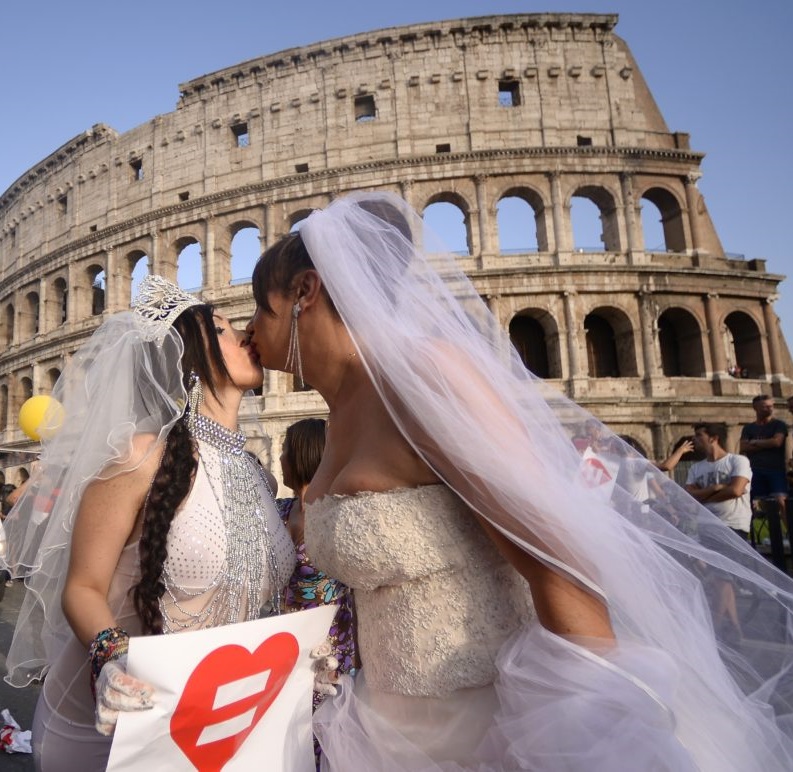
60,000 March in Annual
Prague Pride Parade
Top Ten
Best Worldwide LGBTQ Pride Festivals
One Third of Poland Declared LGBTQ-Free
Zone
34% of Wales is Queer,
Report Reveals
John Nicolson MP Warns Scotland Faces
Explosion of Imported Transphobia From
US
Top Most Homophobic European Countries
Kim Petras: Interview With German Trans Girl
Gay Travel Paris France
Japanese Court Rules
Same-Sex Marriage Ban is Unconstitutional
LGBTQ Europeans: Over Half
Are Not Out
Switzerland Approves Same-Sex Marriage
In Nationwide Referendum
GLAAD Report: LGBTQ Community in Europe
Liebesleben: German Music Video by Amy Wald
Take bullying of young people, an issue
that provided rafts of sympathetic
headlines, as well as plotlines on shows
like “Glee.” Sixty-three percent of
North American respondents to the survey
said they agreed that “Bullying of young
people who identify or are perceived as
gay, lesbian, or transgender is a
significant problem.” And while there
was no region where a majority of
respondents rejected the idea that
bullying was a problem, there is less
consensus on the issue in other regions
than in the United States. Just 40
percent of respondents in Latin America
and the Caribbean said that bullying was
a significant issue, and 49 percent of
Middle Eastern and North African
respondents agreed.
Similarly, marriage equality became a
successful battleground for gay rights
activists in the United States because
it provided an opportunity for the
movement to argue that LGBTQ Americans
wanted the same things as their straight
peers, and the issue helped publicize
the stories of long-term couples who
were being treated differently from
heterosexual husbands and wives. And now
that LGBTQ couples can marry in the
United States, and have been able to do
so for more than a decade in Canada, 50
percent of North American respondents
said that same-sex marriage should be
legal; only in Europe is support higher,
at 52 percent of respondents. Elsewhere,
the numbers are much lower: 36 percent
of Asian respondents supported marriage
equality, as did 34 percent of Latin
American respondents, 21 percent of
Middle Eastern, North African and
Central and Eastern European
respondents, and 20 percent of African
respondents.
It’s possible that the stories of
committed same-sex couples might change
those figures; as the report’s authors
wrote, “These results seem to show that
LGBTI (lesbian, gay, bisexual,
transgender and intersex) visibility
leads to more people actually knowing in
person someone who is LGBTI and, hence
to adopt a more positive attitude
towards them.”
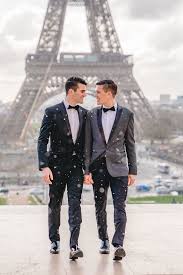
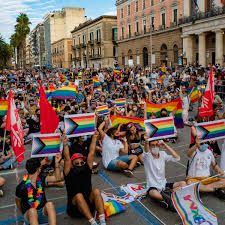
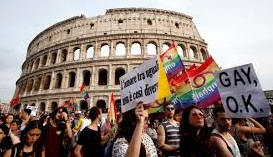
In Latest Move, Russia
Adds LGBTQ Govement to Official List of
Extremists and Terrorists
This Gay Nightclub in
Italy is Considered Europe’s Studio 54
Latvia Swears in Edgars
Rinkevics: EU's First Openly Gay
President
Places Where Showing
LGBTQ Pride Is Illegal
LGBTQ Europeans: Over Half
Are Not Out
Switzerland Approves Same-Sex Marriage
In Nationwide Referendum
Worst Year for LGBTQ Rights in Europe
Netherlands Celebrates 20 Year
Anniversary of First Same-Sex Marriage
Rising LGBTQ Bigotry in Europe Spurs EU to Action
GCN: Gay
Community News (Ireland)
Granddaughter of Italian Fascist
Mussolini Speaks Out for LGBTQ Rights
The Future Is Not In Front of Us, It's Inside of Us
100 Year Old Polish Actor Comes Out as Gay
And the survey results suggest another
area where many people around the world
might be open to changes in laws that
could make it safer for LGBTQ people to
live out of the closet: employment
discrimination. Fifty-six percent of
respondents worldwide said an employer
should not be able to fire workers
because of their sexual orientation or
gender identity. Support for employment
non-discrimination is weaker in some
regions than others; 41 percent
respondents from Middle Eastern and
North African countries and 35 percent
of respondents from other African
countries agreed that companies should
be allowed to fire LGBTQ employees
simply on the grounds of their sexuality
or gender expression. But despite
pockets of support for employment
discrimination, those responses suggest
there may be global support for making
it safer for LGBTQ people to be out on
the job. The United States, of course,
has yet to pass our own Employment
Non-Discrimination Act.
But whatever courses activists in
different countries choose, American
advocates should be cautious about
assuming that it’s possible to export a
US model for equality abroad. In fact,
the idea that same-sex attraction is a
Western, and potentially colonial,
export infringing on other countries’
cultures pops up in a number of regions
where respondents showed other
discomforts about LGBTQ rights.
Forty-seven percent of African
respondents said that homosexuality was
a “Western world phenomenon,” as did 42
percent of Asian respondents. And, as
the report’s authors’ noted, 48 percent
of Russian respondents agreed with that
statement, too.
During the Obama administration,
American embassies have had an explicit
mandate to advocate for LGBTQ rights.
And it’s understandable that gay rights
activists in the United States want to
see their brothers and sisters around
the world win the same protections and
public acceptance. But Logo and ILGA’s
report is a reminder that movements
around the world may have to find their
own messages and paths forward.
[Source: Alyssa Rosenberg, Opinion,
Washington Post]
World LGBTQ News
Greece: Legalizes Same-Sex Marriage in
First for an Orthodox Christian Nation
Congo: Government Cautions Media Not to
Promote LGBTQ-Specific Content
Latvia: Edgars Rinkevics
is EU's First Openly Gay President
Uganda: President Signs Deadly
Anti-Homosexuality Bill into Law
Denmark: Princess Mary Calls for LGBTQ
Equality at Copenhagen WorldPride
Spain: Passes Law Allowing Trans People
to Self-Identify From Age 16
Slovenia: First Eastern European Country
to Recognize Same-Sex Marriage
Russian: Post-Invasion
Plan to Kill Ukrainian LGBTQ Citizens
Italy: Mussolini's Granddaughter Speaks
Out for LGBTQ Rights
Poland: Some Regions End
LGBTQ-Free Zones
Brazil: President
Bolsonaro Say We Have to Stop Being a Country of Fags
England: Maureen Duffy is Britain's First Out Woman in
Public Life
Poland: Elects Harsh Anti-LGBTQ
President
Poland: Pro-LGBTQ Protest
at President's Inauguration
France: First Transgender Mayor Elected
Poland: Won't Let EU Force
It Into Legalizing Same Sex Marriage
Netherlands: Plans to
Remove Gender From ID Cards Entirely
Germany: Approves Ban on Conversion Therapy
Russia: New Survey Shows 1 in 5 Russians Want to Eliminate LGBTQ
Community
Germany: Ban on Ex-Gay Therapy
Russia: Putin Vows to Never Allow Same-Sex
Marriage in Russia
Current LGBTQ Situation in Europe
What is the current situation of the
LGBTQ movement in Europe? The LGBTQ
movement in Europe has been around for a
long time and has grown immensely over
the past decades. However, the
environments in which the groups operate
vary significantly, from Italy to
Finland and the UK to Azerbaijan. The
needs of the movement are always unique
and need individually tailored
responses.
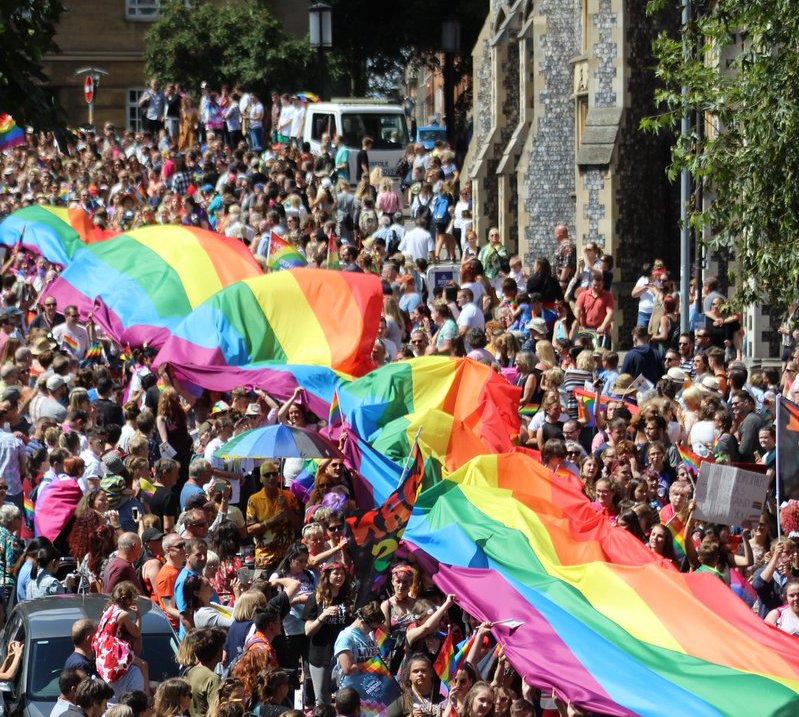
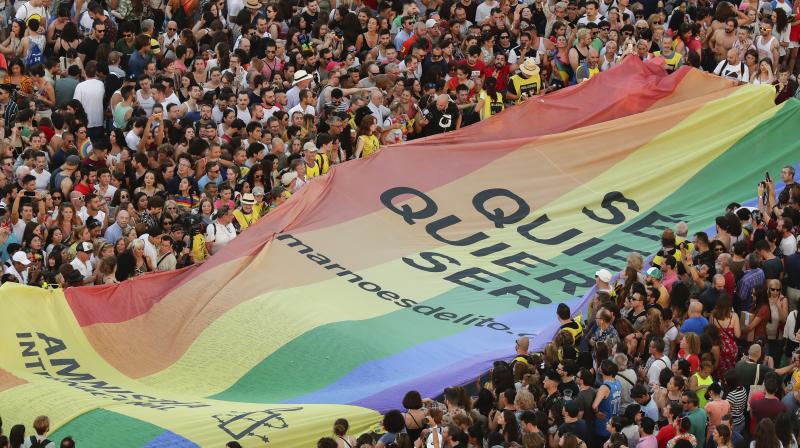
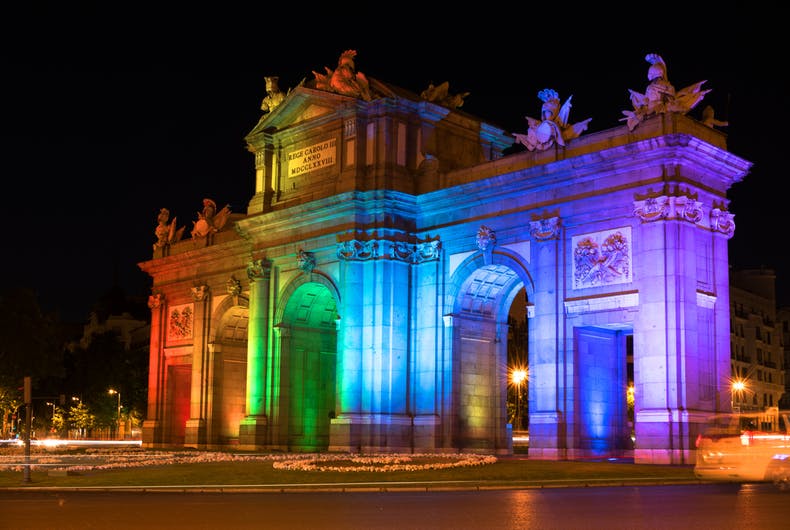
Thousands March in Pride Parades Across Europe
Best
Russian Lesbian Movies
Most Gay-Friendly
Countries In Europe
Marriage Equality Worldwide
Famous LGBTQ People From United Kingdom
London Pride: Still Important
Une Femme Avec Une Femme
Best and Worst European Countries for LGBTQ Rights
Jadwiga: Female King of Poland
LGBTQ Rights in Europe
Dublin LGBTQ Pride Festival
Lesbian Couple First to Legally Wed in Northern Ireland
34% of Wales is Queer, Report Reveals
Northern Ireland News: First Same Sex
Marriages on Valentine's Day
Despite these differences, the movement
overall has become increasingly
professional. NGOs are run on the basis
of democratic governance principles,
reflect the movement’s diversity and
meet high levels of legal and other
accountability standards. This has
allowed an increasing number of
organizations to carry out their work
with paid staff, although many NGOs
continue to depend on volunteers for the
biggest part of their work.
At the same time, many new groups have
emerged and therefore are still in need
of more basic capacity building. There
are a rapidly increasing number of
initiative groups working in cities
outside of capitals. Groups representing
minority groups within the LGBTQ
community are also increasingly their
engagement. Think for instance about
religious groups or groups based on a
certain ethnic background.
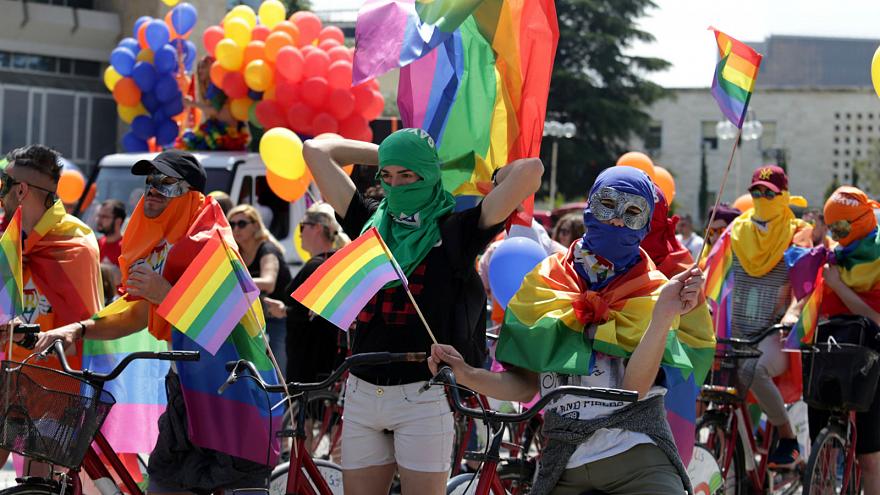
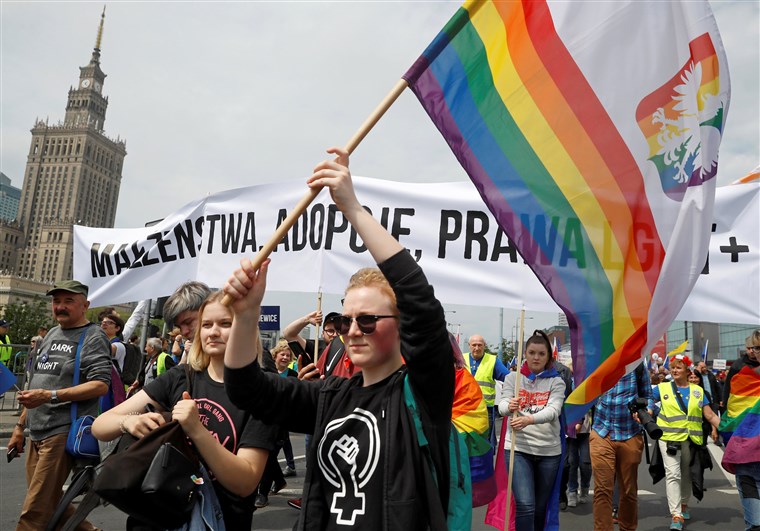
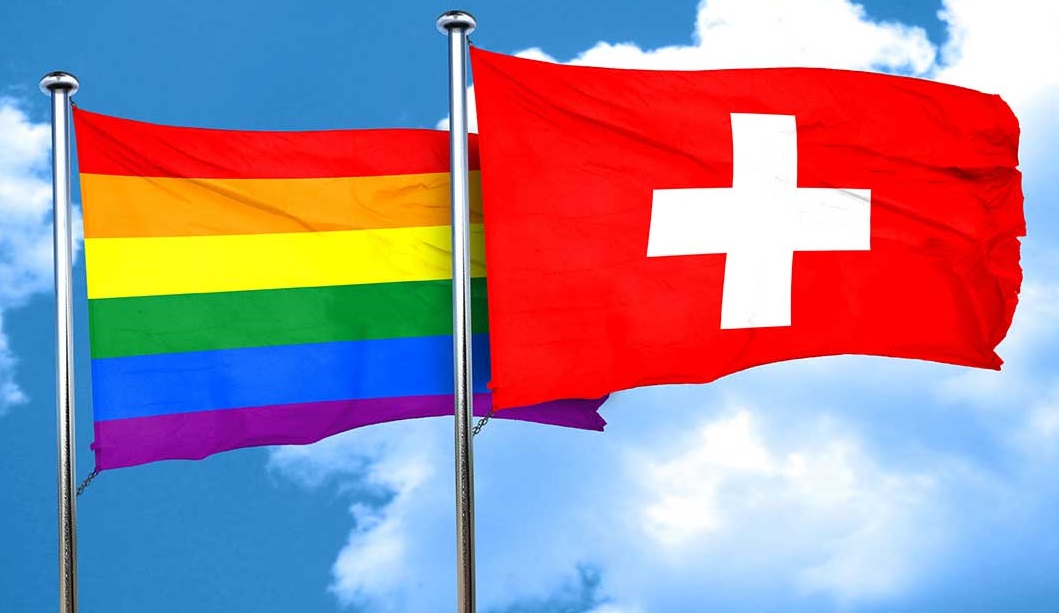
Russia to Outlaw LGBTQ Rights Movement
60,000 March in Annual
Prague Pride Parade
Countries That Will
Punish You for Being Gay
ILGA: Map
of Sexual Orientation Laws Worldwide
Countries Where Gay Men are the Happiest
UN Steps Up Efforts Against Anti-LGBTQ
Violence and Discrimination
Gay Irish Prime Minister
Julianna and Valentina
Study Abroad: Most LGBTQ Friendly Countries
Vladimir Putin: No LGBTQ Families, No Same Sex Marriages
in Russia
Best Countries for LGBTQ Visitors
This Gay Nightclub in
Italy is Considered Europe’s Studio 54
Princess Mary Calls for LGBTQ Equality at
Copenhagen WorldPride
Queen of England's Gay Cousin Got Married
Russian Post-Invasion Kill List Includes
Ukrainian LGBTQ Citizens
Scotland Becomes First
Country to Require LGBTQ Curriculum in Schools
Julianna and Valentina
ILGA-Europe has invested heavily in
building skills to allow other
organizations to use a human rights
based approach in their work. This
approach combines the documentation of
and reporting on human rights violations
with advocacy work. Together with
litigation work that advances the LGBTQ
rights agenda through the court, this
approach has proved tremendously helpful
in advancing domestic and regional
agendas through an evidence-based
approach.
In recent years it has become
increasingly important to combine the
human rights based approach with efforts
that focus on winning the hearts and
minds of people over to support LGBTQ
issues. The reason for this is simple:
legislative debates on LGBTQ issues have
become highly visible battles, leading
to greater involvement of both
supporters and opponents. This means
that the capacity of the European
movement needs to grow to effectively
mobilize its own supporters, to win the
backing of politicians, allies and
citizens.
The need to raise awareness and campaign
has grown rapidly in recent years,
combined with an increased pressure on
financial resources. Effectively
supporting the European movement
therefore includes questions around
finding sustainable resources to make
sure the movement can carry out their
work.
[Source: IGLA Europe]
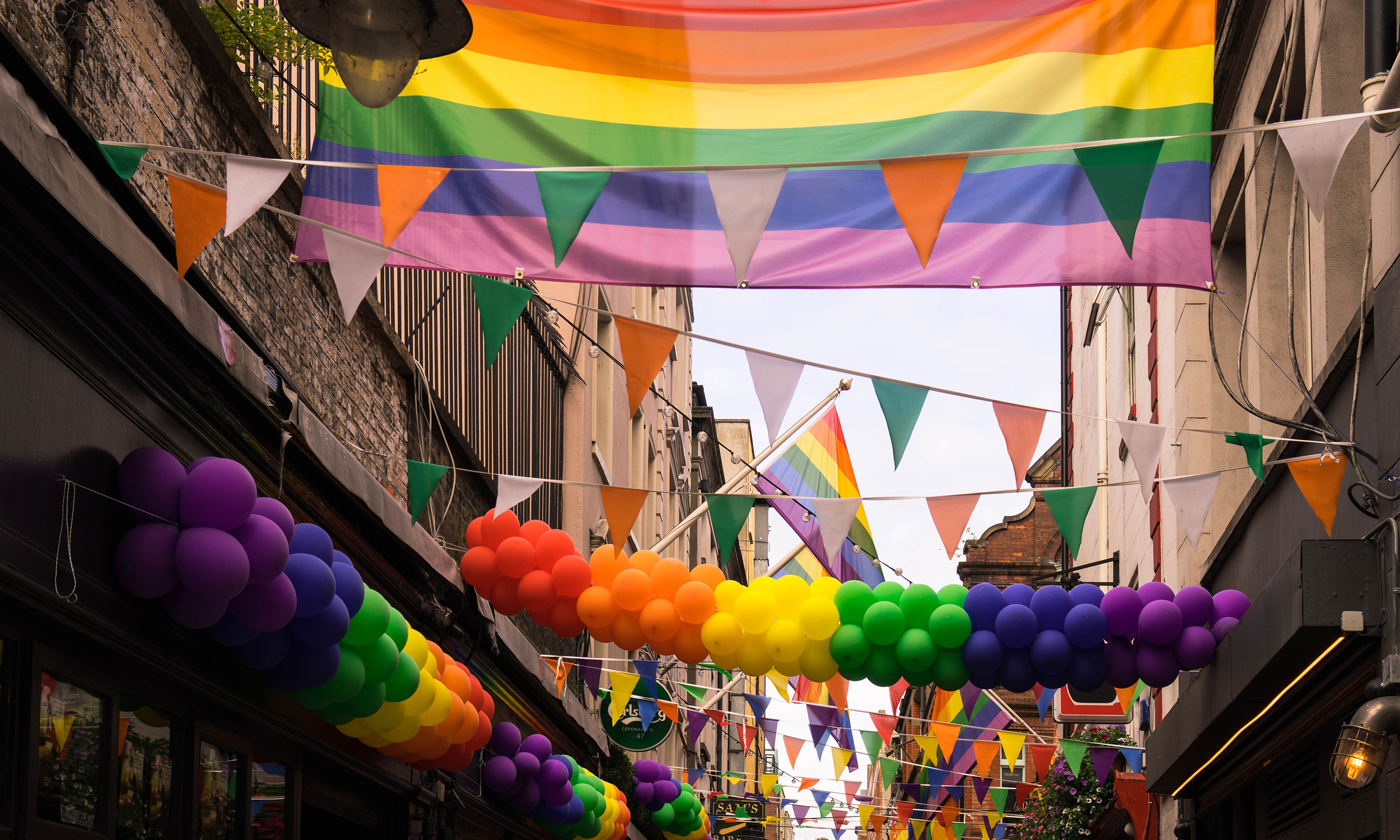
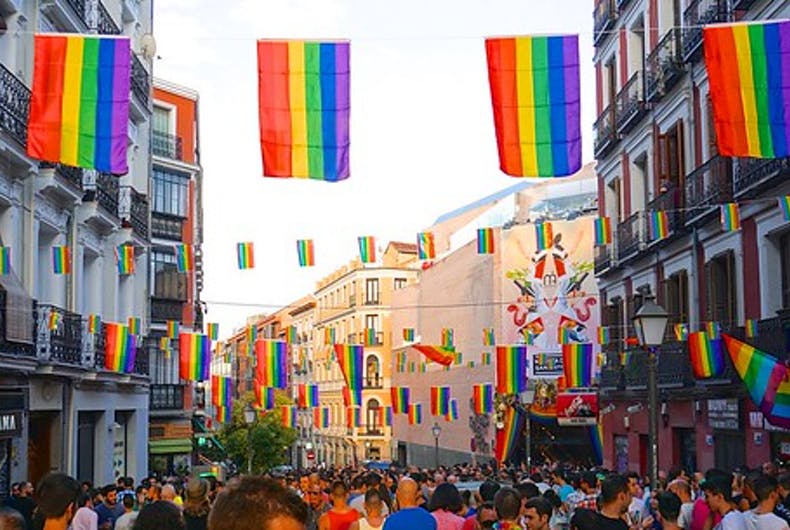
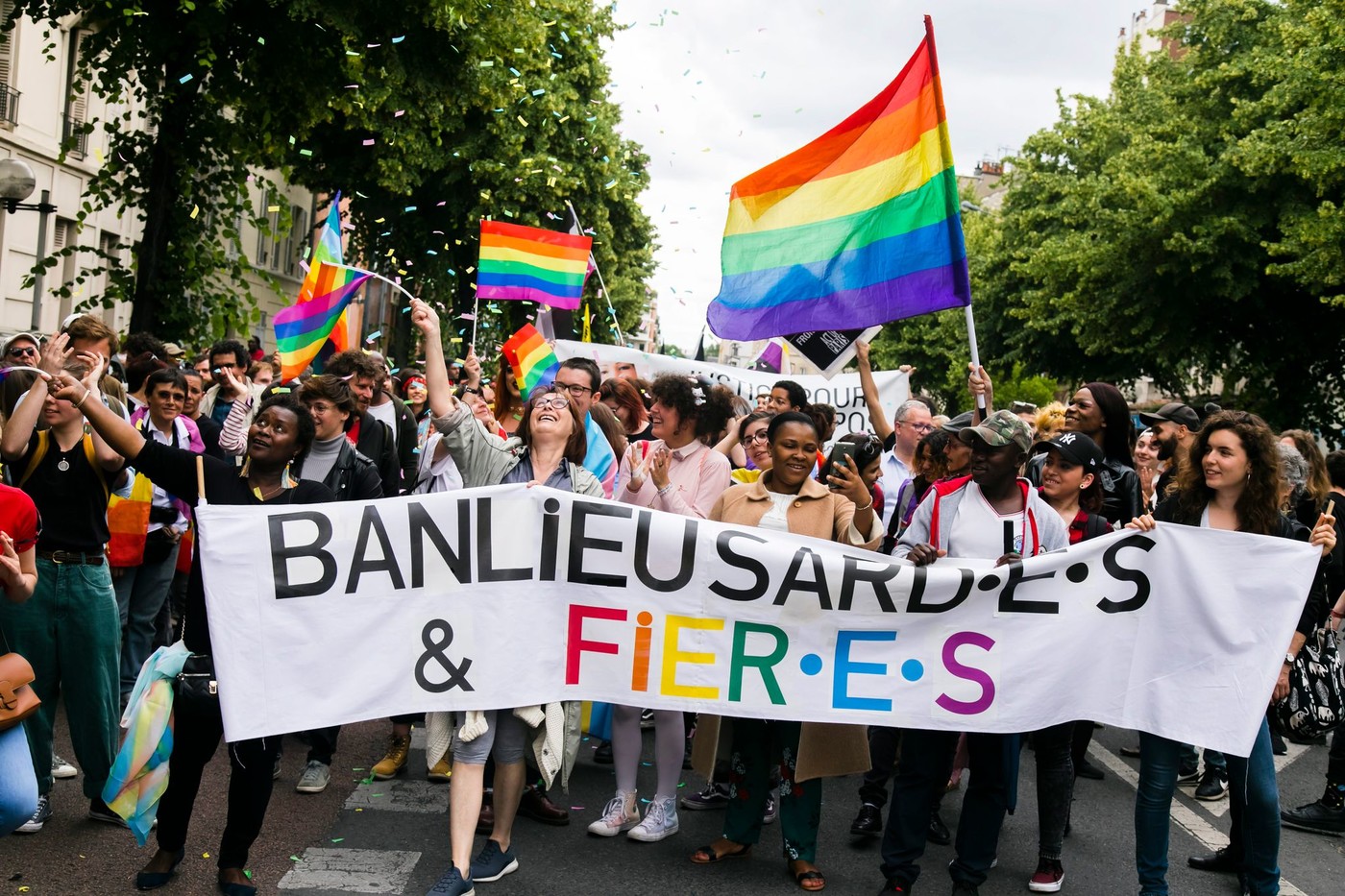
Rainbow Europe: Ranking of LGBTQ Friendly Countries
Gay Marriage Now Legal in Northern Ireland
34% of Wales is Queer, Report Reveals
Romanian Courts Rule LGBTQ Couples Should Have Legal
Protection
Proud Dads Going to Dublin LGBTQ Pride Festival with
Their Gay Sons
GLAAD Report: LGBTQ Community in Europe
Liebesleben: German Music Video by Amy Wald
The Future Is Not In Front of Us, It's Inside of Us
100 Year Old Polish Actor Comes Out as Gay
Pride Celebration in Rio de Janeiro
Northern Ireland News: First Same Sex Marriages on
Valentine's Day
One Third of Poland Declared LGBTQ-Free Zone
Czech Republic Could Be Next for Marriage
Equality
Senator David Norris: The Man Who Overturned Ireland’s
Homosexuality Ban
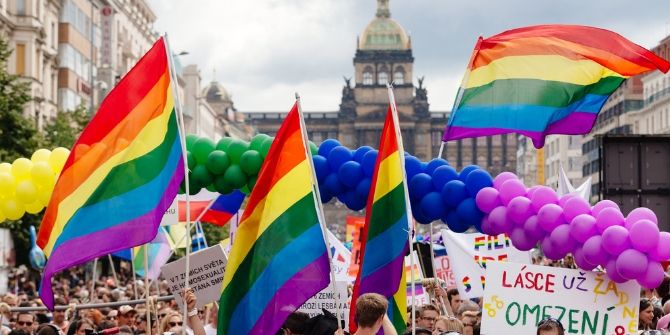
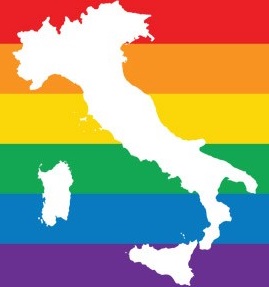
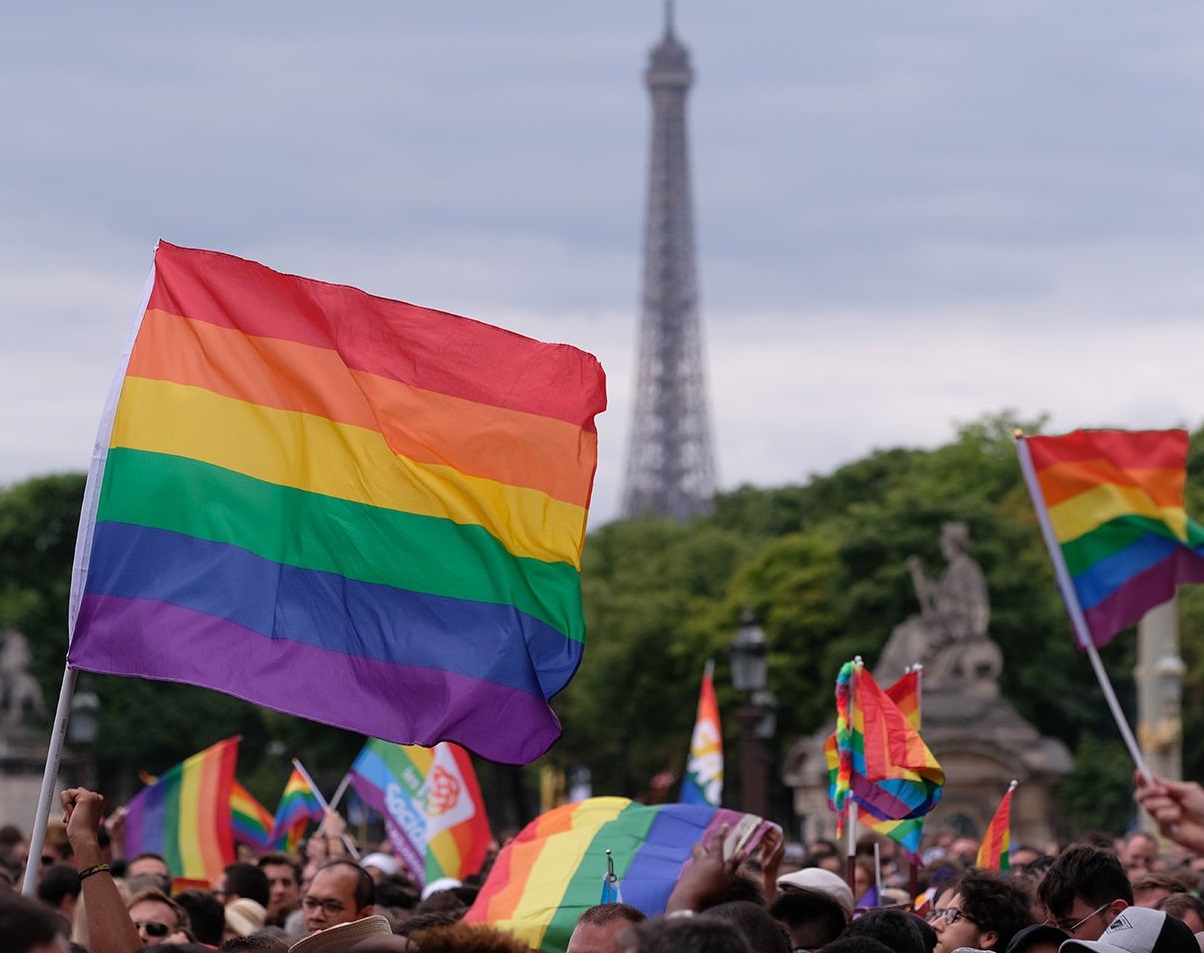
Gay Kings and Queens of England
This Gay Nightclub in Italy is
Considered Europe’s Studio 54
Europe Becoming More Tolerant: Positive Side Effects
What Do Polish People Think About Homosexuality?
How LGBTQ Friendly is London?
Luxembourg's Openly Gay Prime Minister and His Partner
Top Ten Best Worldwide
LGBTQ Pride Festivals
Italian Lesbian Web Series
Lesbian TV Drama from Spain: Los Buenos Amigos
Best
Italian Lesbian Movies
Helpful Guide: French LGBTQ Vocabulary
LGBTQ Royals of the World
Scotland Becomes First
Country to Require LGBTQ Curriculum in Schools
First Gay Couple Married in Germany
Famous LGBTQ People From
Italy
Gianna Amelio - Film Director
Giorgio Armani - Fashion Designer
Lorenzo Balducci - Actor
Pierre Cardin - Fashion Designer
Immanuel Castro - Singer, Songwriter
Nino Cesarini - Model
Claudio Cipelletti - Film Director
Milly D'Abbraccio - Actor, Porn Star
Domenico Dulce - Fashion Designer
Elenora Duse - Actor
Prospero Farinacci - Lawyer, Judge
Stefano Gabbana - Fashion Designer
Giancarlo Giametti - Businessman
Luca Guadagnino - Film Director
Andrea Occhipinti - Actor
Emanuele Crialese - Film Director
Alfredo Ormando - Writer
Alfonso Signorini - Television Host
Bruno Tonioli - Dancer
Luca Trevisan - Computer Science Professor
Gianni Versace - Fashion Designer
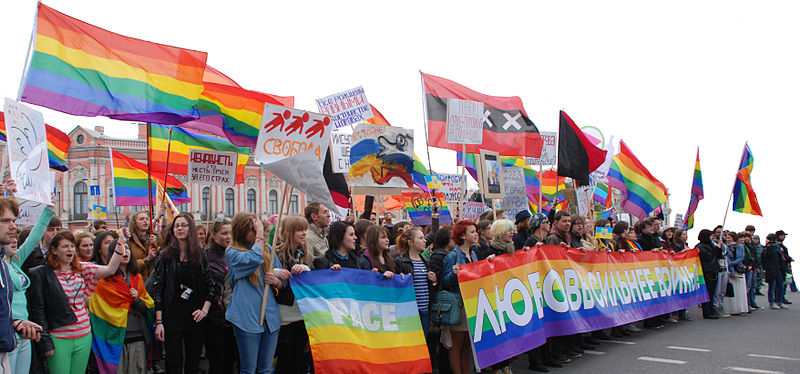
World LGBTQ News
Poland: How LGBTQ Youth are Changing the
Country’s Conservative Culture
Greece: Homophobic Homeowner Refuses to
Help Gay Family Fleeing Wildfire
Russia: Putin Signs Legislation
Outlawing Gender-Affirming Procedures
Turkey: Thousands Protest Victor Orban’s
Bigotry at Budapest Pride
Italy: Over 40% of LGBTQ Workers Say
Careers Have Been Hit by Discrimination
England: Trans People Protest Against UK
Government Blocking Scottish Gender Bill
France: Outlaws Discredited Practice of
LGBTQ Conversion Therapy
Africa:
Gay Sex Is Legal in Botswana, Affirms
Appeals Court
Ukraine: Thousands March for LGBTQ
Rights
Germany: Two Transgender Women Win Seats in Parliament
Netherlands: 20 Year
Anniversary of First Same-Sex Marriage
Bavaria: Duke François
Comes Out as Gay at 87
Switzerland: Approves Same-Sex Marriage
In Nationwide Referendum
Japan: Court Rules
Same-Sex Marriage Ban is Unconstitutional
England: Veteran LGBTQ Humanist Activist
George Broadhead Dies
Hungary: Proposes Ban on Material Promoting LGBTQ
Activity Among Youth
Scottland: Politician Says
Same-Sex Marriage is the Cause of COVID 19
Ghana: Politicians Move to Ban All LGBTQ
Advocacy
Ireland: Incredible Transformation Into an LGBTQ Haven
Greece: Appoints First Out
Gay Cabinet Minister
Germany: Making it Easier for Lesbian Couples to
Co-Parent
Hungary: Ramps Up Assault
on LGBTQ Community and Bans LGBTQ Rights
Marriage Equality Worldwide
|
2001 Netherlands
2003 Belgium
2005 Spain
2005 Canada
2006 South Africa
2009 Sweden
2009 Norway
2010 Argentina
2010 Iceland
2010 Portugal
2012 Denmark
2013 Brazil
2013 France
2013 New Zealand
2013 Uruguay
2014 Scotland
 |
2014 United Kingdom
2015 Ireland
2015 Luxembourg
2015 United States
2016 Greenland
2016 Colombia
2017 Finland
2017 Malta
2017 Germany
2017 Australia
2019 Austria
2019 Taiwan
2019 Ecuador
2020 North Ireland
2020 Costa Rica
2021 Switzerland
 |
Marriage Equality Worldwide
Top Most Homophobic European Countries
Most Gay-Friendly Countries In Europe
Je
Suis Lesbienne
London Pride: Still Important
60,000 March in Annual Prague Pride
Parade
Casamento na Praia: Brazilian Same Sex
Wedding
Best and Worst European Countries for LGBTQ Rights
Senator David Norris: The Man Who
Overturned Ireland’s Homosexuality Ban
Sitges, Spain: Gay Capitol of Europe
Luxembourg's Openly Gay Prime Minister and His Partner
First Gay Couple Married in Germany
Places Where Showing LGBTQ Pride Is
Illegal
Gay Travel Barcelona Spain
Top Most LGBTQ Affirming European
Countries
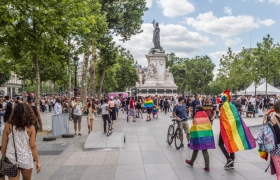
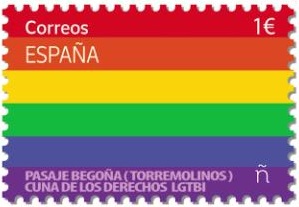
Countries That Will Punish You
for Being Gay
ILGA: Map of
Sexual Orientation Laws Worldwide
Top Ten Best
Worldwide LGBTQ Pride Festivals
34% of Wales is Queer, Report
Reveals
UN Steps Up Efforts Against
Anti-LGBTQ Violence and Discrimination
Scene From Italian Film: Solitude of Prime
Numbers
Gay Kings and Queens of England
International Gay
& Lesbian Association of Europe
Colombia's First Woman and Lesbian Mayor Marries
Girlfriend
Best
German Lesbian Movies
Under the Skin: Short Spanish Language Trans Film
Jeremie: La Relation Entre Raph et Alexia
Gay Friendly Madrid Spain
O Amor De Aninha E Cacau
Video Advice: Should LGBTQ People Go to Homophobic
Countries?
Best Russian Lesbian
Movies
Rainbow Riots: LGBTQ Voices From Uganda
Short Portuguese Film: Para Ser Sua
Australian
Parliament Approves Marriage Equality
Being Gay in Poland
Famous LGBTQ People From
Spain
Pedro Almodovar - Film Director, Screenwriter
Gretel Ammann - Philosopher, Activist, Writer
Marta Balletbo-Coll - Actor, Director
Jose Villarrubia - Artist
Robert Fernandez Canuto - Film Director,
Screenwriter
Nath Sakura - Photographer
Cristobal Balenciaga - Fashion Designer
Isabel Pantoja - Singer
Pio del Rio Hortega - Scientist
Juan Suarez Botas - Illustrator
Carla Antonelli - Spain’s first openly
transgender Senator
Angela Ponce Camacho - Trans Model, Miss Spain
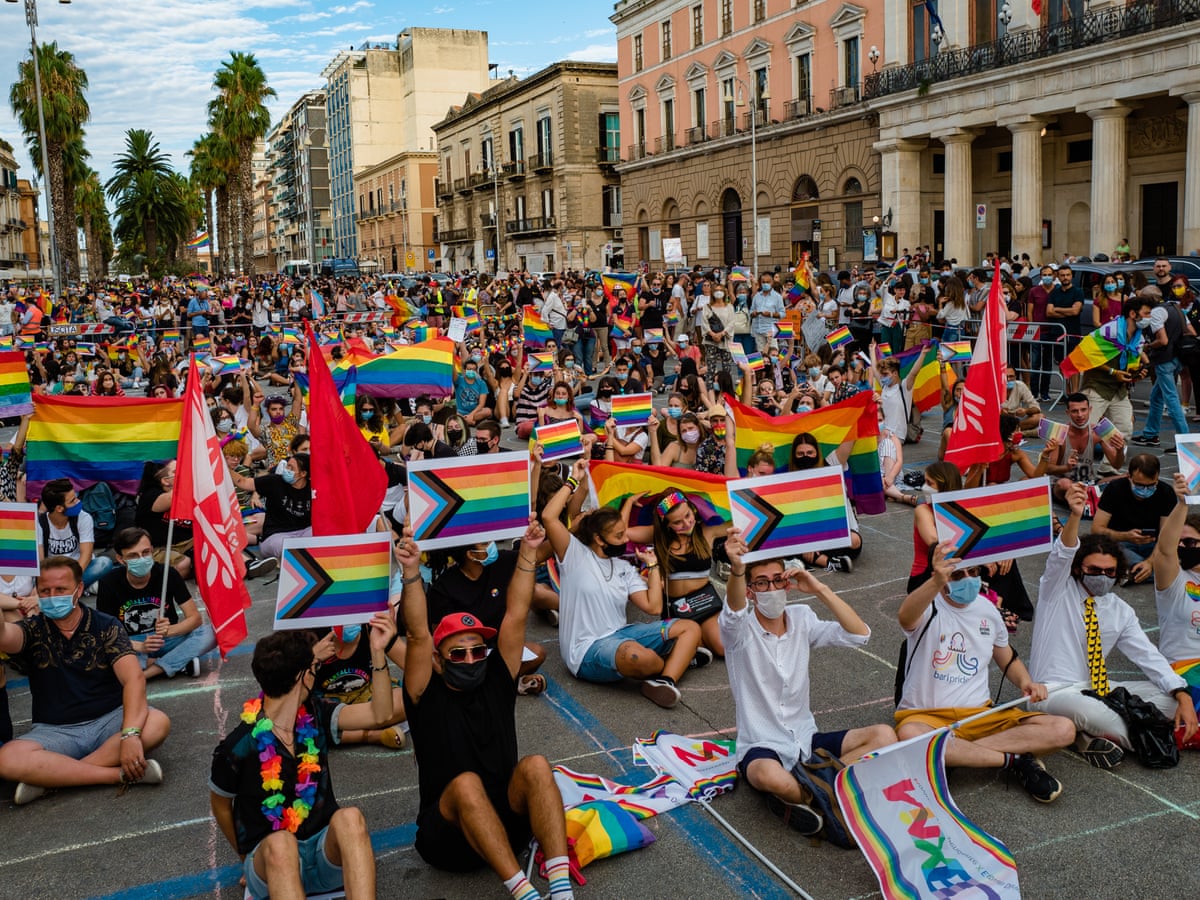
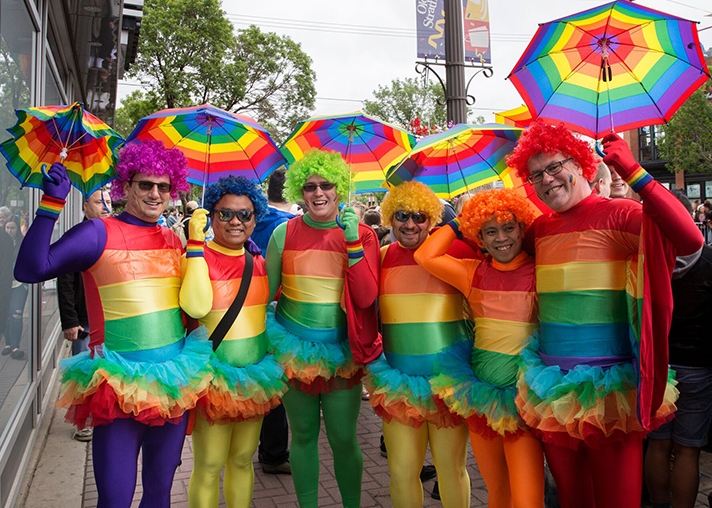
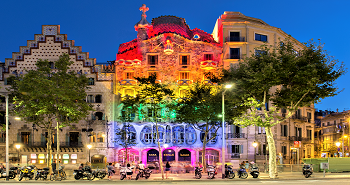
European Gay Slang Dictionaries
Spanish Gay Slang Dictionary
German Gay Slang Dictionary
French Gay Slang Dictionary
Italian Gay Slang Dictionary
Portuguese Gay Slang Dictionary
Greek Gay Slang Dictionary
Danish Gay Slang Dictionary
Dutch Gay Slang Dictionary
Swedish Gay Slang Dictionary
British Gay Slang Dictionary
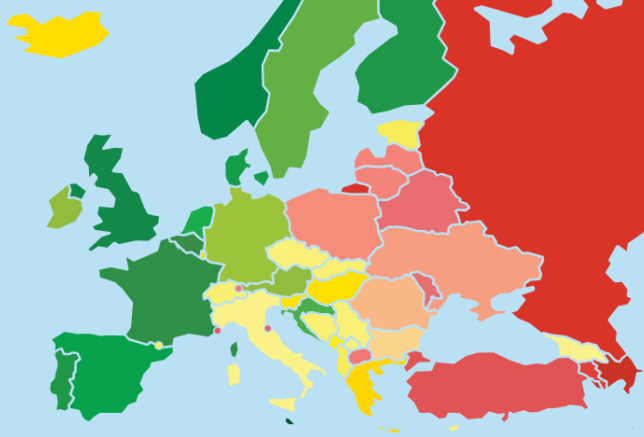
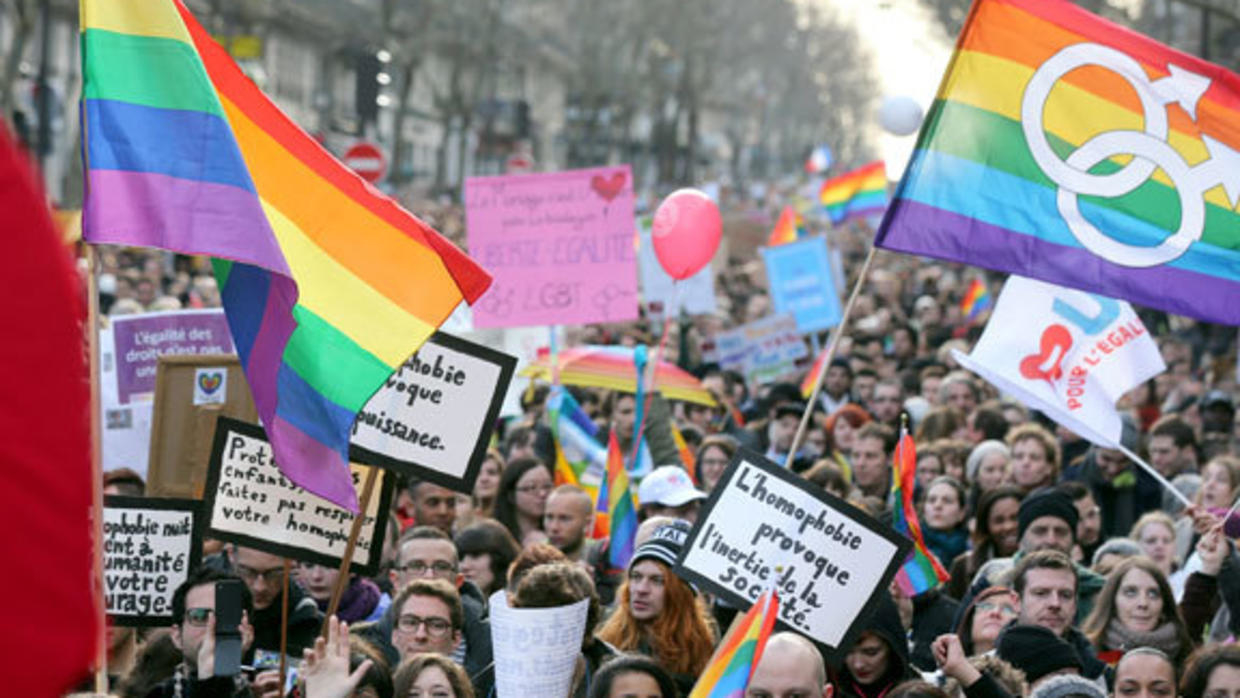
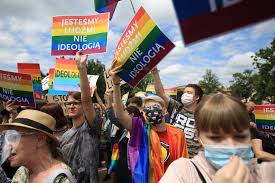
World LGBTQ News
Greece: Legalizes Same-Sex Marriage in
First for an Orthodox Christian Nation
Congo: Government Cautions Media Not to
Promote LGBTQ-Specific Content
Latvia: Edgars Rinkevics
is EU's First Openly Gay President
Uganda: President Signs Deadly
Anti-Homosexuality Bill into Law
Denmark: Princess Mary Calls for LGBTQ
Equality at Copenhagen WorldPride
Spain: Passes Law Allowing Trans People
to Self-Identify From Age 16
Slovenia: First Eastern European Country
to Recognize Same-Sex Marriage
Russian: Post-Invasion
Plan to Kill Ukrainian LGBTQ Citizens
Italy: Mussolini's Granddaughter Speaks
Out for LGBTQ Rights
Poland: Some Regions End
LGBTQ-Free Zones
Brazil: President
Bolsonaro Say We Have to Stop Being a Country of Fags
England: Maureen Duffy is Britain's First Out Woman in
Public Life
Poland: Elects Harsh Anti-LGBTQ
President
Poland: Pro-LGBTQ Protest
at President's Inauguration
France: First Transgender Mayor Elected
Poland: Won't Let EU Force
It Into Legalizing Same Sex Marriage
Netherlands: Plans to
Remove Gender From ID Cards Entirely
Germany: Approves Ban on Conversion Therapy
Russia: New Survey Shows 1 in 5 Russians Want to Eliminate LGBTQ
Community
Germany: Ban on Ex-Gay Therapy
Russia: Putin Vows to Never Allow Same-Sex
Marriage in Russia
Rainbow Europe Index
Which European countries have the best
and worst LGBTQ rights? Countries
across Europe need to do more to protect
the rights of lesbian, gay, bisexual,
transgender, and queer people, according
to a new index, which says law and
policy advances have slowed down across
the region.
The Rainbow Europe Index, released in
May 2018 by advocacy group ILGA-Europe,
ranks 49 countries in the region on
their LGBTQ equality laws and policies,
giving them a score between 0% (gross
violations of human rights,
discrimination) and 100% (respect for
human rights, full equality).
Azerbaijan fared the worst in this
year’s ranking, scoring less than 5% on
criteria measuring policies in areas
including equality and
non-discrimination, legal gender
recognition, hate crime and civil
society space. ILGA-Europe cited police
raids against LGBTQ people and offensive
public statements by politicians among
the major issues in the country.
Armenia, Turkey and Monaco were also
among the poorest performers on the
index.
Ghana’s Anti-LGBTQ Bill Draws International Condemnation
After it is Passed by Parliament
Woman Arrested for
Extremist Crime of Wearing Rainbow Earrings in Russia
In Brazil, Using Homophobic Slurs Is Now
Punishable By Prison
More Violence, More Equality: What’s the
Current State of LGBTQ Rights in Europe?
Gay Couple in Nepal Becomes First to
Officially Register for Same-Sex Marriage in the Country
As King Charles III is Crowned, Will he Address LGBTQ
Rights?
Uganda’s President
Signs Deadly Anti-Homosexuality Bill into Law
Uganda's LGBTQ Community In Shock Over New Measure, Gay
Activist Says
Ukrainian MP Submits Draft Bill Calling
for Legal Recognition of Same-Sex Couples
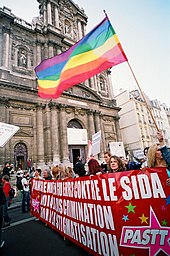
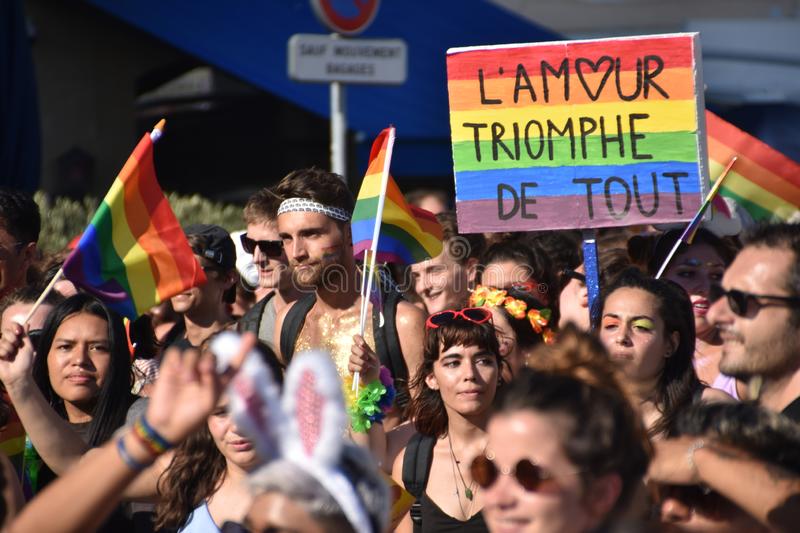
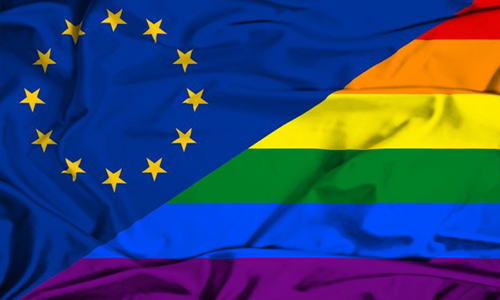
In the European Union, Latvia was the
lowest scoring country, with a mark of
around 16%, followed by Poland (18%) and
Lithuania (21%).
Meanwhile, Malta topped the board for
LGBTQ rights, scoring more than 91% with
positive steps over the past year,
including the legalization of same-sex
marriage in July. Belgium, Norway, the
UK and Finland also received high scores
for progressive LGBTQ laws and policies.
However, ILGA-Europe noted that only 16
of the 49 countries assessed scored
above 50%, with several countries
historically seen as “equality
trailblazers” failing to make any major
advances in the past year.
[Source: Alice Cuddy, Euro News]
New Survey: Half of LGBTQ Europeans
Still in the Closet
Rainbow Europe: Ranking of LGBTQ Friendly Countries
World Wide Pride Celebrations
LGBTQ Rights in
Europe
Putin Vows to Never Allow Same-Sex
Marriage in Russia
Finland's Prime Minister Raised by Two
Moms
LGBTQ Royals of the World
One Third of Poland Declared LGBTQ-Free Zone
Duas Noivas Lindas: Casamento Budista
Top Most LGBTQ Affirming European Countries
Germany to Recognize Third Gender
Thousands March in Pride Parades Across Europe
Top Ten
Best Worldwide LGBTQ Pride Festivals
Helpful Guide: French LGBTQ Vocabulary
Being Gay in Poland
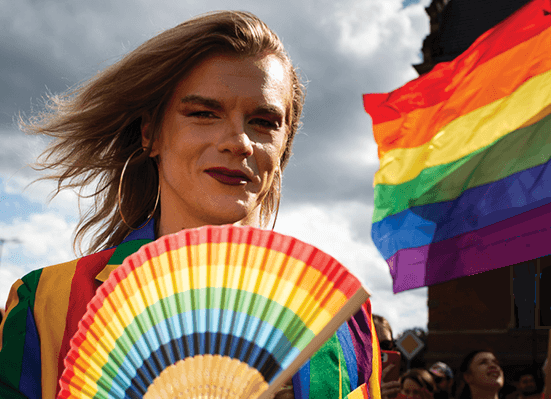


Marriage Equality Worldwide
Best Irish
Lesbian Movies
34% of Wales is Queer,
Report Reveals
60,000 March in Annual
Prague Pride Parade
Countries That Will
Punish You for Being Gay
Senator David Norris: The Man Who
Overturned Ireland’s Homosexuality Ban
UN Steps Up Efforts
Against Anti-LGBTQ Violence and
Discrimination
Most Gay-Friendly
Countries In Europe
ILGA: Map
of Sexual Orientation Laws Worldwide
German Lesbian Video: Snogging
Kim Petras: Interview With German Trans
Girl
Gay Irish Prime Minister
Lesbian German Soap Opera: Forbidden
Love
Top Most Homophobic European Countries
Northern Ireland News: First Same Sex
Marriages on Valentine's Day
Germany Bans Gay Conversion Therapy
Gay Kings and Queens of Europe
EU Observer: Gay Rights Under Threat
Best and Worst European Countries for LGBTQ Rights
Video Advice: Should LGBTQ People Go to Homophobic
Countries?
LGBTQ Community in Nordic/Scandinavian
Countries
Denmark was the first country in the
world to recognize same-sex partnerships
back in 1989, and the Scandinavian
country officially legalized same-sex
marriage in 2012. Gallup ranked Denmark
among the “Top Places for Gay People to
Live” in the world, and Copenhagen, its
capital, was listed among the top cities
for ex-pats.
Iceland, which legalized same-sex
marriage back in 2010, was recently
ranked as the happiest country for gay
men. The Nordic island nation was also
the first country in the world with an
openly gay head of government, Jóhanna
Sigurðardóttir, who served as prime
minister from 2009-2013.
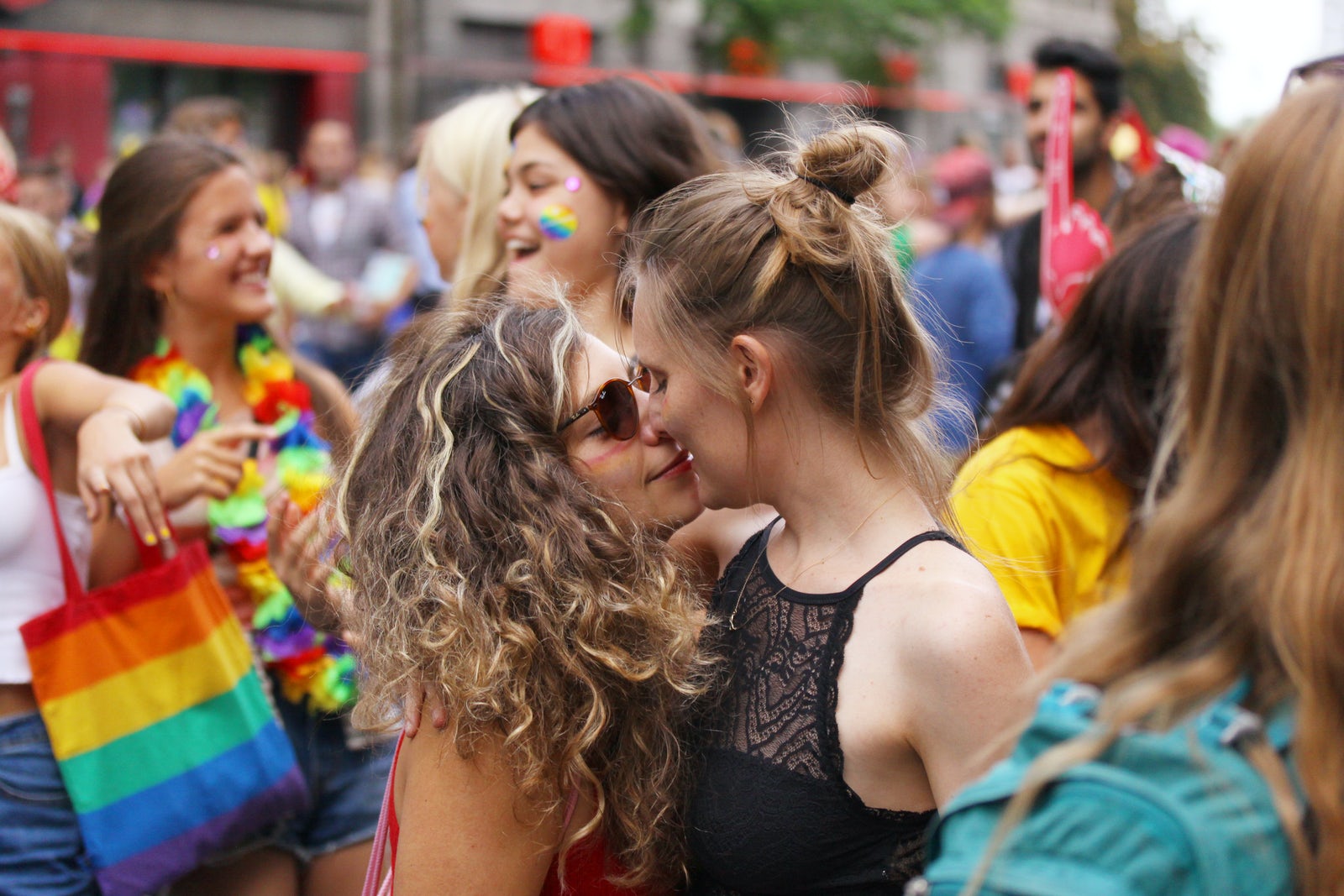
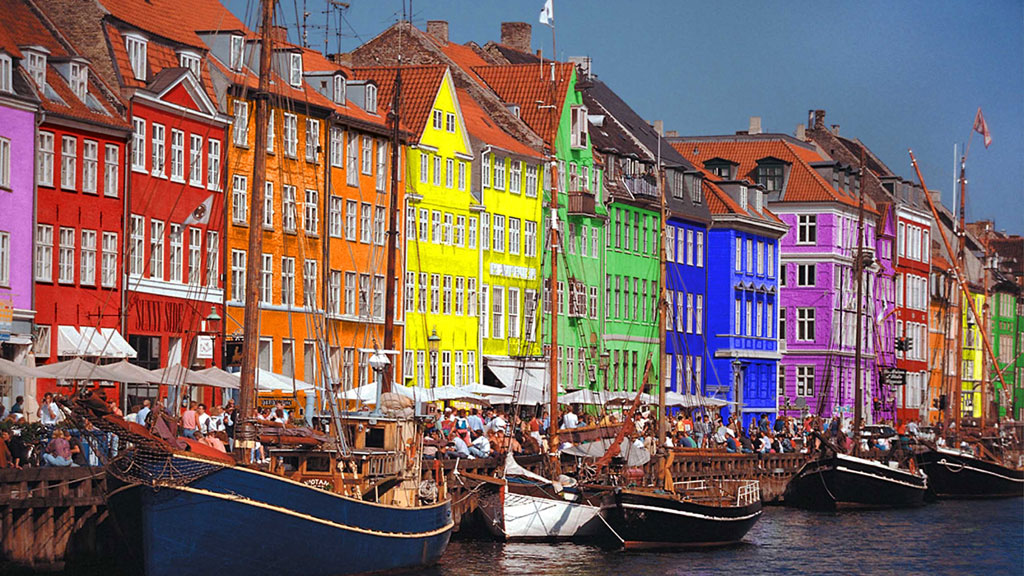
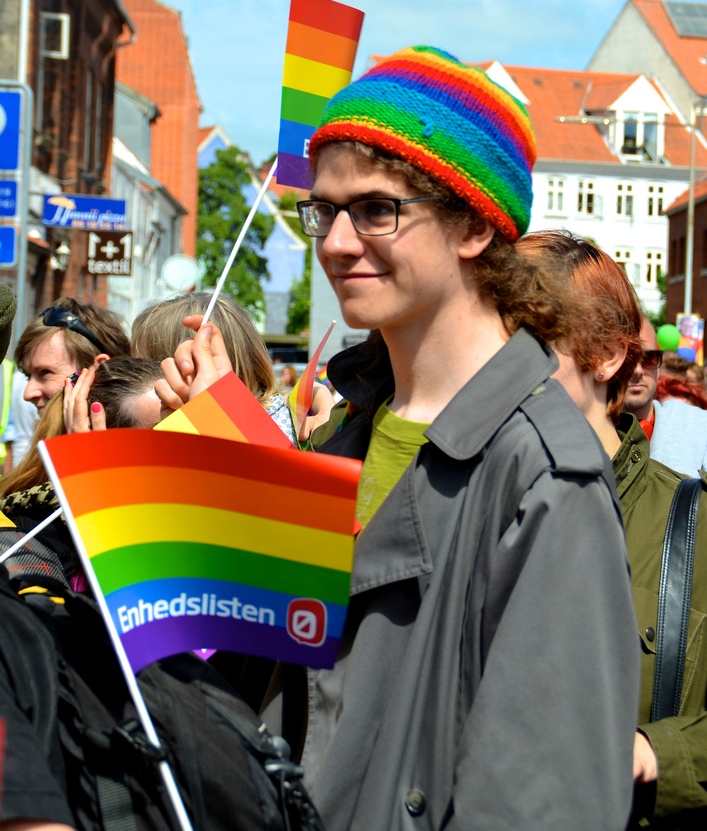
The Netherlands is considered the most
gay-friendly country in the world,
according to Gallup, and it was also the
first country in the world to legalize
same-sex marriage in 2000. Amsterdam,
its capital, is a popular destination
for LGBTQ tourists and was ranked among
the best cities in the world for expats.
Norway legalized same-sex marriage in
2009, became the first country to enact
anti-discrimination protections based on
sexual orientation in 1981 and is ranked
no. 6 on HSBC's best countries for expats. LGBTQ culture is also very visible in
the Scandinavian country -- Pride in
Oslo is one of Norway's largest events,
and the city is also home to one of the
world's best gay choirs.
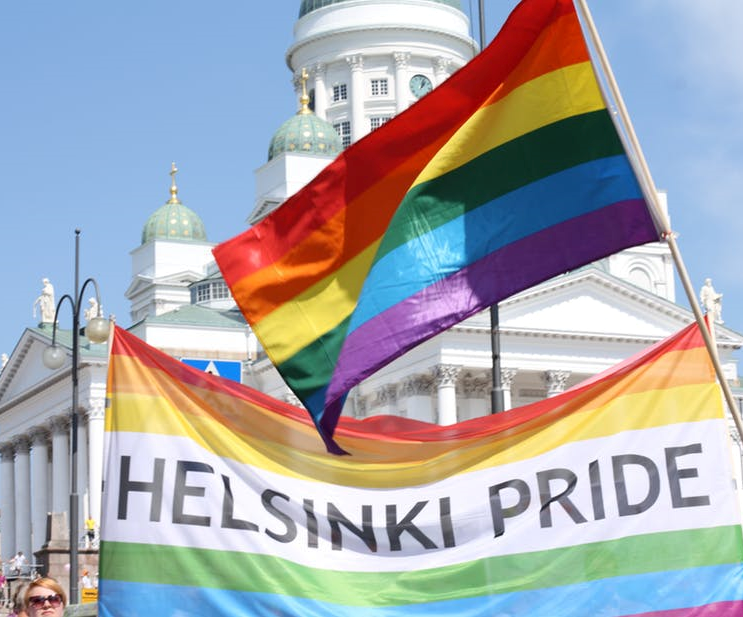
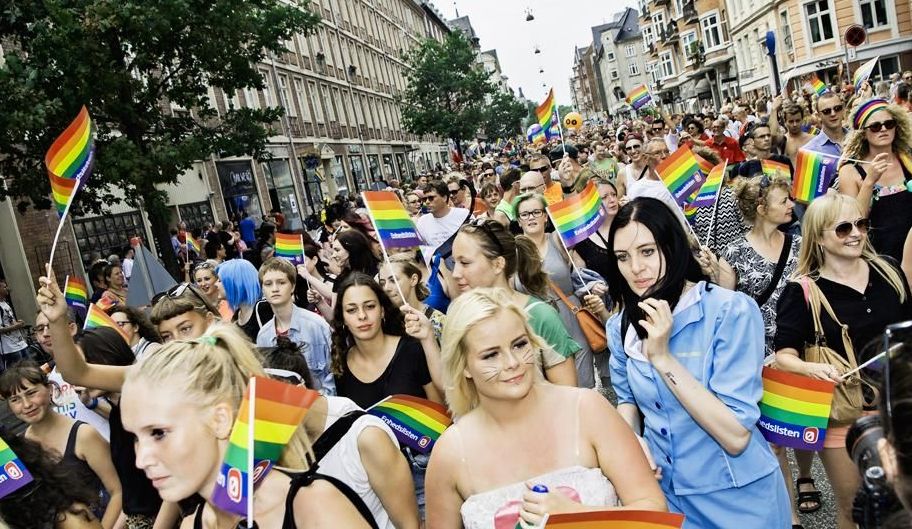
Sweden comes in at no. 8 on both
Gallup's list of "Top Places for Gay
People to Live" and HSBC's list of best
countries for expats. Same-sex marriage
has been legal in the Scandinavian
country since 2009, and anti-LGBTQ
discrimination has been banned since the
80s.
Finland Ranks 6th in European LGTBQ
Rights Comparison
Are the Dutch LGBTQ Friendly?
LGBTQ Rights in Norway
Nordic Countries Lead World in LGBTQ
Equality
LGBTQ Rights in Iceland
Princess Mary Calls for LGBTQ Equality
at Copenhagen WorldPride
Being Gay in Amsterdam
Gay Friendly Sweden
Netherlands Celebrates 20
Year Anniversary of First Same-Sex
Marriage
LGBTQ Rights in Finland
Stockholm is a Great Lesbian Destination
LGBTQ Rights in Sweden
What is the LGBTQ Culture Like in the
Netherlands?
LGBTQ Youth in Finland
Celebrating LGBTQ Pride in Iceland
LGBTQ Rights in the Netherlands
Gay Visitors to Iceland
Biggest Pride Parade in Scandinavia
LGBTQ Rights in Denmark
Gay Culture in Sweden
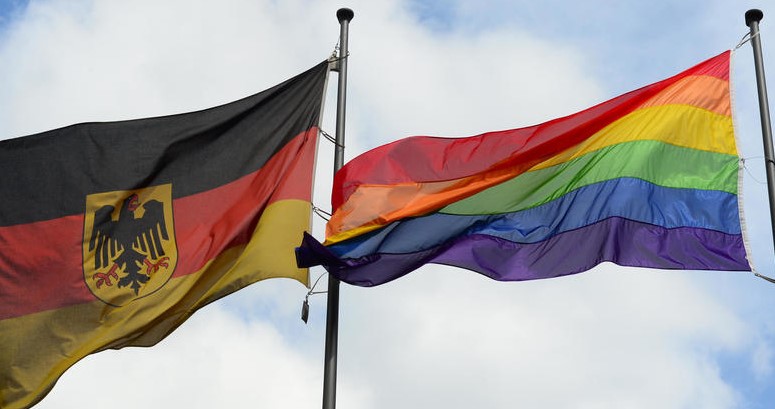
Famous LGBTQ People From Germany
Kim Petras - Pop Music Singer, Songwriter,
World's youngest transsexual
Susanne Baer - Legal Scholar
Erica Brausen - Art Dealer
Manfred Bruns - Civil Rights Activist
Wolfgang Busch - Filmmaker
Dirk Dirksen - Music Promoter
Prince Egon von Furstenberg - Banker, Aristocrat
Wilhelm von Gloeden - Photographer
Alfred Hirsch - Athlete, Teacher, Zionist
Activist
Ilse Kokula - Educator, Author, Activist
Dora Richter - First known person to undergo
gender reassignment surgery
Rudolph Moshammer - Fashion Designer
Michael Mronz - Sports/Events Manager
Friedrich Wilhelm Murnau - Film Director
Ulrike Ottinger - Photographer, Filmmaker
Eva Rieger - Musicologist
Alice Schwarzer - Journalist
Wieland Speck - Film Director
Jorn Weisbrodt - Art Administrator
Felice Schragenheim - World War II Jewish
Resistance Fighter
Lilly Wust - World War II Soldier, Activist
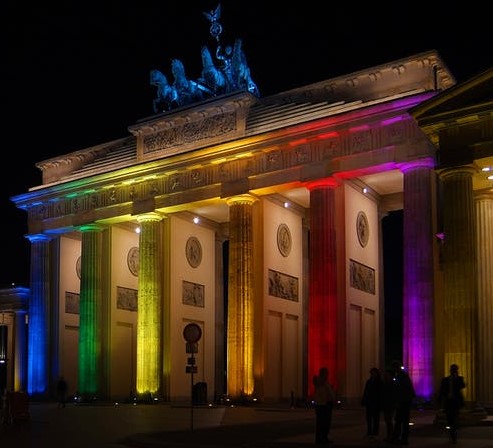
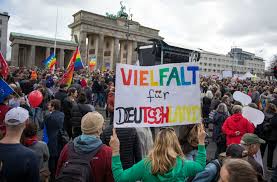
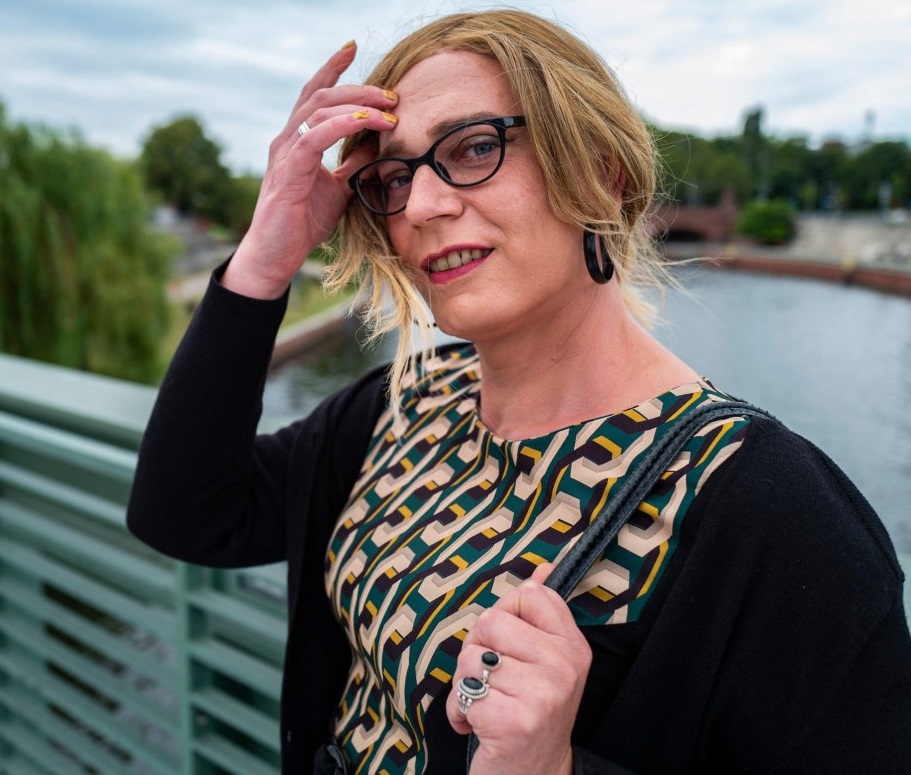
Germany
Supports Trans, Non-Binary, and Intersex
Citizens
Germany's lower house of parliament, the
Bundestag, has approved legislation that will
make it easier for transgender, intersex and
nonbinary people to officially change their name
and gender.
The reforms, which will take effect in November
2024, will allow individuals who want to legally
change their gender to do so by a simple
procedure at government registry offices. It
will replace the current "transsexual law,"
which dates back to the 1980s, and required two
assessments from two experts, followed by a
court decision. Advocates for the LGBTQ
community have called the process onerous and
humiliating.
"For over 40 years, the 'transsexual law' has
caused a lot of suffering... and only because
people want to be recognized as they are,“ Sven
Lehmann, the government's commissioner for queer
issues, told lawmakers. "And today, we are
finally putting an end to this."
The new rules will also allow minors above the
age of 14 to change their legal name and gender
with their parents' permission. Teens without
the consent of their parents may ask a family
court to overrule them.
But not all lawmakers are on board with the
changes. The law passed with 374 votes in favor
to 251 against, and 11 abstentions. The
conservative opposition has criticized the
legislation for what it described as a lack of
safeguards against abuse for young people.
[Source: DW Germany, Berlin, April 2024]
World LGBTQ News
Poland: How LGBTQ Youth are Changing the
Country’s Conservative Culture
Greece: Homophobic Homeowner Refuses to
Help Gay Family Fleeing Wildfire
Russia: Putin Signs Legislation
Outlawing Gender-Affirming Procedures
Turkey: Thousands Protest Victor Orban’s
Bigotry at Budapest Pride
Italy: Over 40% of LGBTQ Workers Say
Careers Have Been Hit by Discrimination
England: Trans People Protest Against UK
Government Blocking Scottish Gender Bill
France: Outlaws Discredited Practice of
LGBTQ Conversion Therapy
Africa:
Gay Sex Is Legal in Botswana, Affirms
Appeals Court
Ukraine: Thousands March for LGBTQ
Rights
Germany: Two Transgender Women Win Seats in Parliament
Netherlands: 20 Year
Anniversary of First Same-Sex Marriage
Bavaria: Duke François
Comes Out as Gay at 87
Switzerland: Approves Same-Sex Marriage
In Nationwide Referendum
Japan: Court Rules
Same-Sex Marriage Ban is Unconstitutional
England: Veteran LGBTQ Humanist Activist
George Broadhead Dies
Hungary: Proposes Ban on Material Promoting LGBTQ
Activity Among Youth
Scottland: Politician Says
Same-Sex Marriage is the Cause of COVID 19
Ghana: Politicians Move to Ban All LGBTQ
Advocacy
Ireland: Incredible Transformation Into an LGBTQ Haven
Greece: Appoints First Out
Gay Cabinet Minister
Germany: Making it Easier for Lesbian Couples to
Co-Parent
Hungary: Ramps Up Assault
on LGBTQ Community and Bans LGBTQ Rights
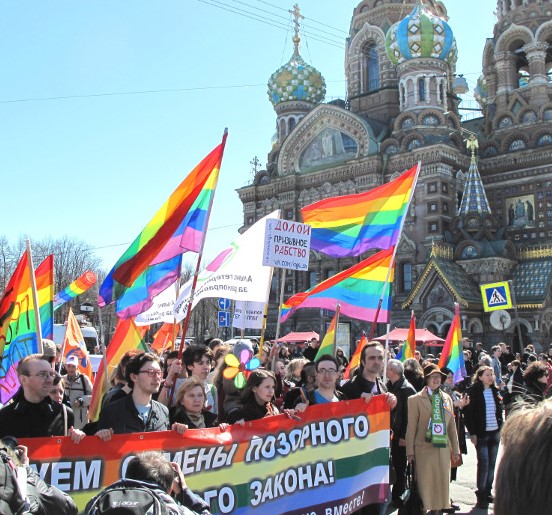
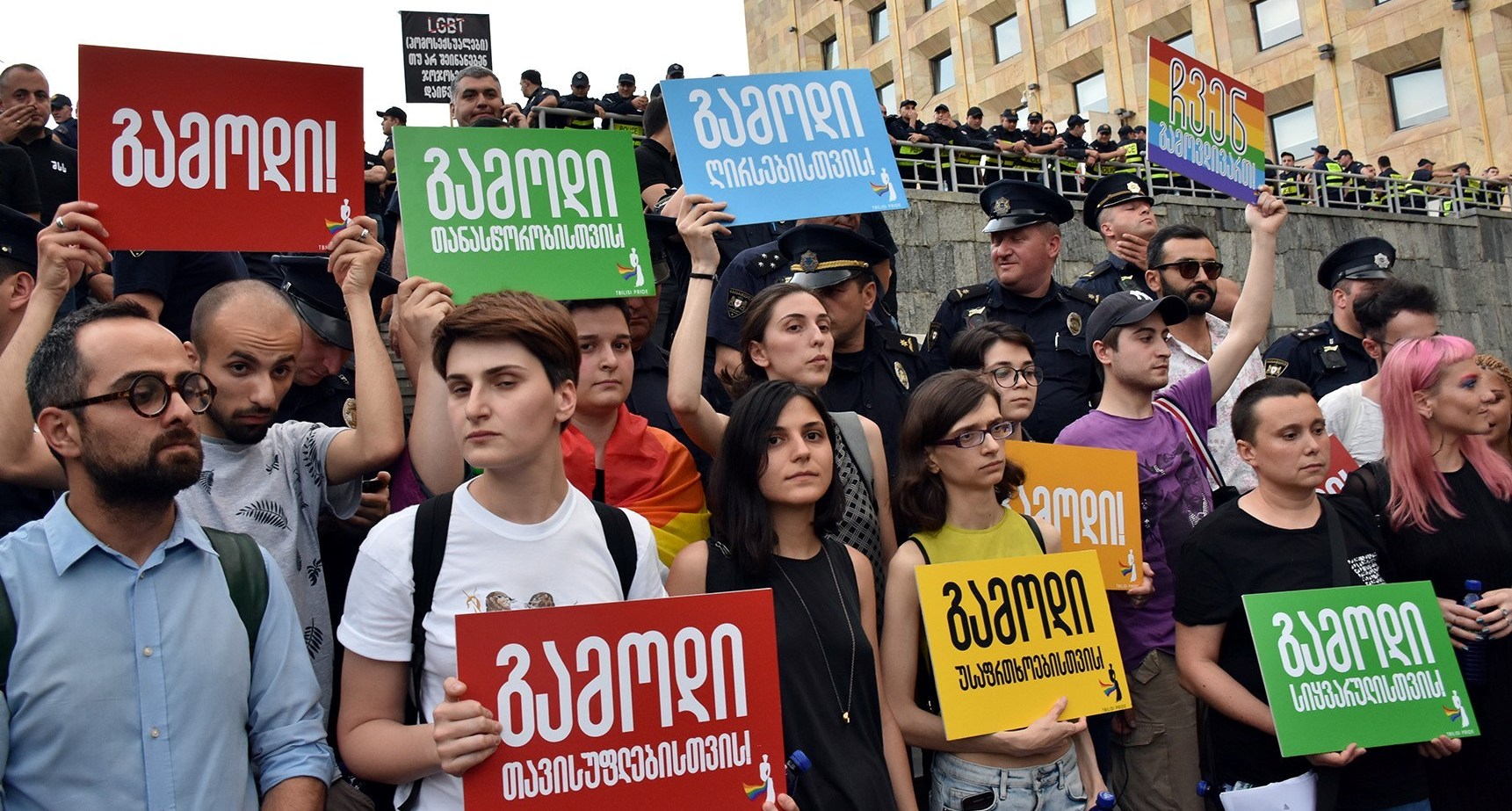
LGBTQ Community in Eastern Europe
I have been tracking and reporting on
anti-gay tendencies occurring across
Europe with a growing frequency. One
week I am reporting on a referendum in
Slovakia, where conservative groups,
backed by the Catholic Church, attempt
to put further restrictions on marriage
equality. The next week there are
massive protests in Slovenia, where the
marriage equality law was just past,
with thousands threatening to launch
contra-referendum to overrule the new
legislation. Growing up in the Czech
Republic, a post-communist country in
the heart of Europe, I have never
experienced open hostility towards the
LGBTQ community. During the Communist
time, the state was too busy with
political repression to concern itself
with policing sexual orientation. While
today, public awareness, media
attention, and legal improvements are a
showing a steady increase. This has
often to do more with curiosity than
actual sympathy. However, the LGBTQ
community in the Czech Republic has
progressed far better than many of its
western counterparts. Sometimes, we
believe that the way we grow up and the
experiences we have encountered must be
the standard for everybody else. I
thought of Eastern Europe as very
liberal and forthcoming in regards to
the LGBTQ rights. I could not have been
more wrong. More than 16 countries in
Europe and Eurasia introduced anti-gay
laws, or restricted marriage to solely
between woman and man in the past five
years, making my experiences from the
Czech Republic the exception.
[Source: Michael Krejcova, GLAAD]
60,000 March in Annual
Prague Pride Parade
Latvia Swears in Edgars
Rinkevics: EU's First Openly Gay
President
Estonia Set to Become
First Baltic State to Legalize Same-Sex
Marriage
Slovenia Becomes First Eastern European
Country to Recognize Same-Sex Marriage
Thousands March in
Ukraine for LGBTQ Rights
Czech Republic Could Be
Next for Marriage Equality
Gay Man Elected as President of Latvia
LGBTQ Rights in Russia
Tblisi's First LGBTQ Pride Celebration
What Do Ukranians Think About LGBTQ Issues?
ABC News: What It's Like to Be Gay in
Chechnya
Putin Vows to Never Allow Same-Sex
Marriage in Russia
Washington Post: Gay Rights in Eastern
Europe
The Guardian: LGBTQ Rights in Russia
UNDP: Being LGBTQ in Eastern Europe
Vladimir Putin: No LGBTQ Families, No Same Sex
Marriages in Russia
LGBTQ Russian Couple: Myths About Lesbians
Struggle of Being Gay in Albania
LGBTQ Rights Around the World Are in Danger
New Yorker: Russian LGBTQ Persecution Defies
Belief
Facts on LGBTQ Rights in Russia
Homonegativity in Eastern Europe
Young Adults in Central and Eastern Europe
Oppose LGBTQ Rights
Best Russian
Lesbian Movies
Nasha Vesna: Russian Lesbians
New Survey Shows 1 in 5 Russians Want to Eliminate LGBTQ
Community
Queer Tango in Russia
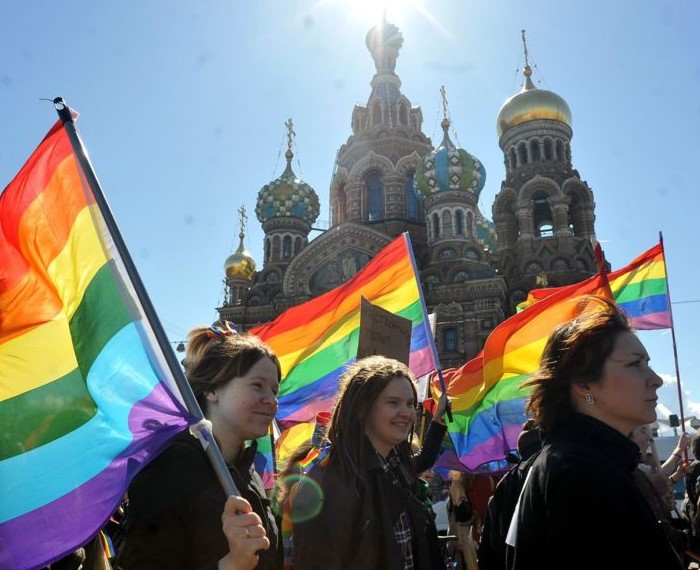
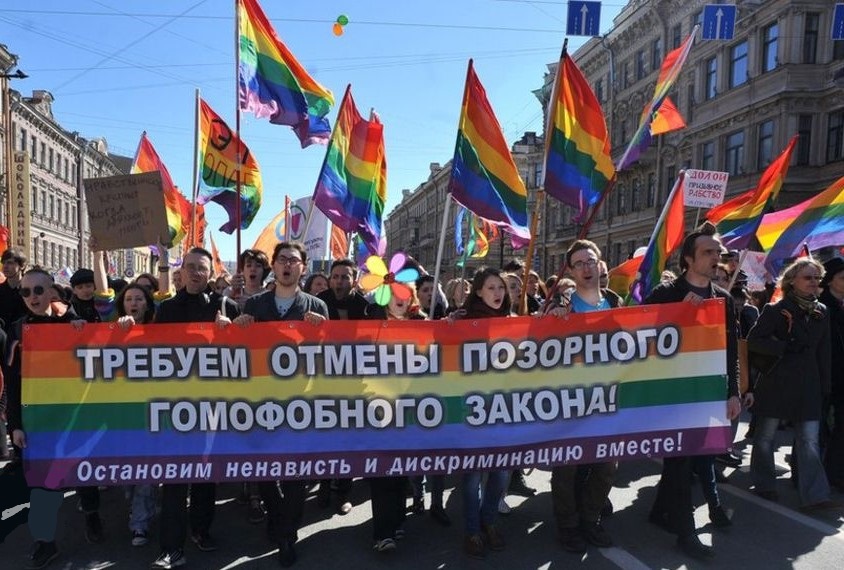
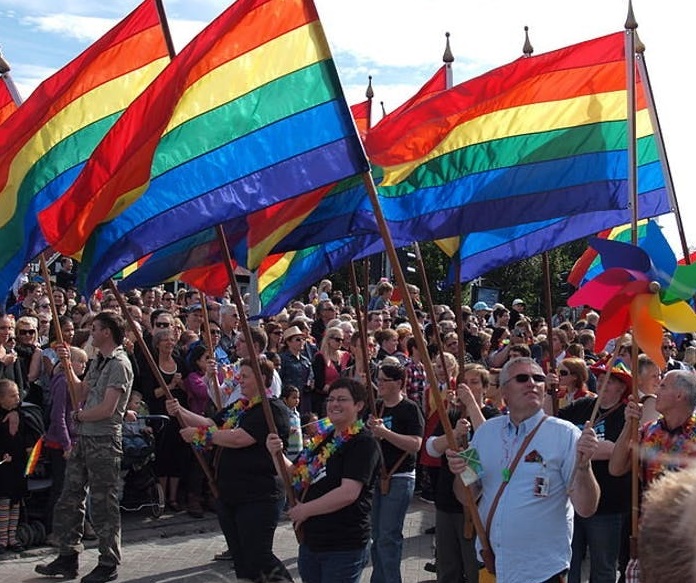
LGBTQ Situation in Russia
It has been well-documented that
discrimination against lesbian, gay,
bisexual, transgender or queer persons
(including by the government and its
agents) is widespread and severe in
Russia. LGBTQ persons in Russia
experience discrimination in many
different aspects of their life, ranging
from housing to healthcare and from
their relationships and to their
employment. Discrimination occurs when
LGBTQ persons are treated unfavorably
due to their sexual orientation or their
gender identity and where they are
treated the same as others, but
experience an adverse impact due to
their sexual orientation or gender
identity. Discrimination can take many
different forms, from not being offered
a promotion at work to being evicted or
from harassment at school to (most
troubling of all) physical assault
resulting in serious injury or death.
Both domestic and international human
rights organizations report high levels
of discrimination and violence against
LGBTQ persons in Russia. In 2015, the
Russian LGBTQ Network surveyed 1,346
LGBTQ persons regarding their experience
of discrimination and violence over a
period of 12 months. The survey found
that 17% of respondents had experienced
physical violence, and 32% had
experienced discrimination in the
workplace and workplace harassment. Nine
percent of respondents had faced
restricted access to goods and services,
and eight percent had experienced
restricted access to health care.
[Source: Equal Rights Trust]
New Russian Law Bans Well-Known LGBTQ
Films like Call Me by Your Name
Moscow Toughens Anti-Gay Laws: LGBTQ Russians Fear for
the Future
Putin Vows to Never Allow Same-Sex Marriage in Russia
Russian Post-Invasion Kill List Includes
Ukrainian LGBTQ Citizens
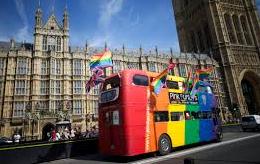
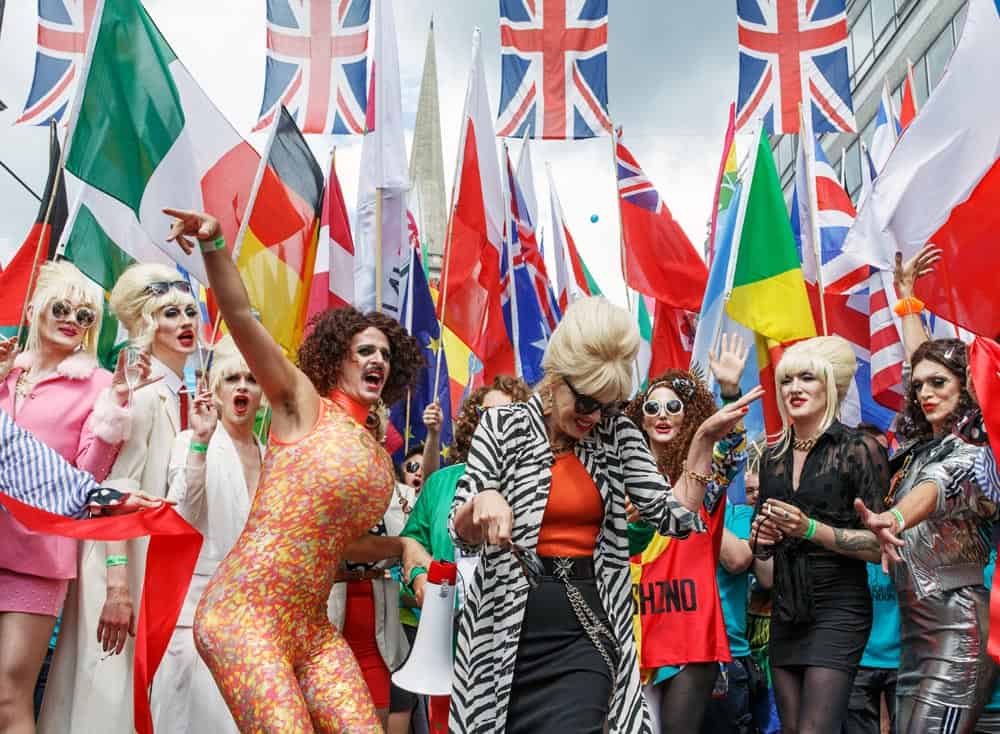
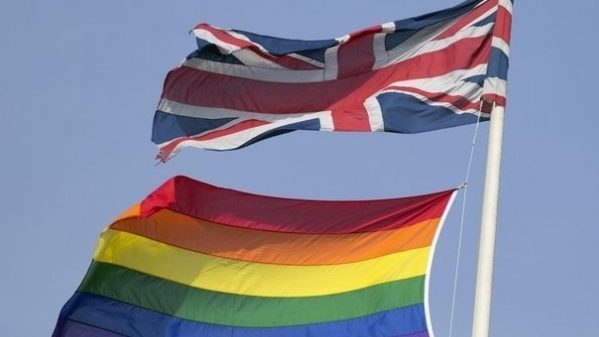
Famous LGBTQ People From
United Kingdom
Freddie Mercury - Singer, Songwriter (Queen)
Ian McKellen - Actor
George Michael - Singer, Songwriter
Stephen Fry - Comedian, Actor, Activist
John Albert Bullbrook - Archeologist
Boy George - Singer, Songwriter
Peter Shaffer - Playwright (Equus, Amadeus,
Black Comedy)
Christopher Bailey - Businessman
Katherine Gillespie Sells - Activist
Alan Turing - Mathematician, Computer Scientist
Graham Chapman - Comedian, Writer, Actor
(Monty Python)
Larry Grayson - Comedian, TV Personality
Marc Almond - Singer, Songwriter
Rupert Everett - Actor
Anthony Sher - Shakespearan Actor, Author,
Playwright
Horace Walpole - Politician
Oscar Wilde - Poet
David Burgess - Lawyer
Sue Perkins - Comedian, Actor, Writer
Mhairi Black - Scottish Politician
Oliver Sacks - Neurologist, Medical Doctor,
Writer (Awakenings)
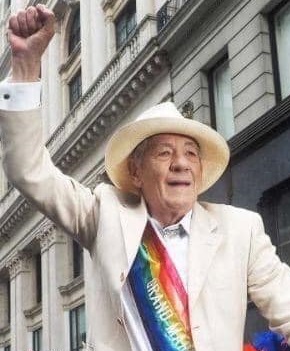
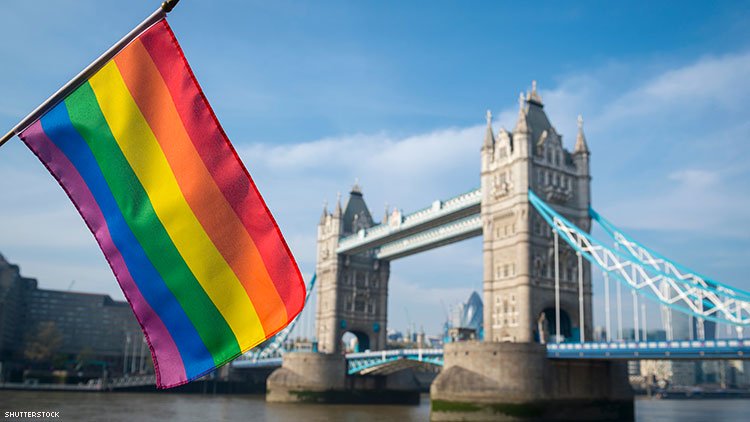
34% of Wales is Queer, Report
Reveals
SNP’s Mhairi Black: Trans People Should Be Left
Alone By Politicians
Keir Mather: Publicly Gay Labour
MP is New Baby of the House After Election Win
Thousands Hit the Streets of London to Celebrate
Pride
London Mayor Sadiq Khan announces LGBTQ Homeless
Shelter Funding
Pride in London Unveils Powerful
New ‘Never March Alone’ Campaign
King Charles III and New Prince of Wales: Royals'
Attitude About LGBTQ Rights
Queen had Understanding of LGBTQ Community, Says Gay
Former Lord Mayor
Maureen Duffy is Britain's First Out Woman in
Public Life
Senator David Norris: The Man Who Overturned Ireland’s
Homosexuality Ban
Veteran LGBTQ Humanist Activist
George Broadhead Dies
Lesbian Capital of the UK: Hebden Bridge
Queen of England's Gay Cousin Got Married
Gay Kings and Queens of England
Brian Kennedy - Musician (Northern Ireland)
Lord Ivar Mountbatten - Queen Elizabeth II’s
Cousin
George Broadhead - Activist (LGBTQ Humanist
Movement)
Philip Bourchier O'Ferrall - Media Executive
John Schlesinger - Film Director
Esmé Louise James - Sex Historian
Francis Bacon - Philosopher, Scientist, Author
Patrick Trevor-Roper - Eye Surgeon
Dusty Springfield - Pop Singer
Charles Laughton - Stage/Film Actor, Director
John Maynard Keynes - Economist
Sue Sanders - Activist
Lord Byron - Poet
Phyllida LLoyd - Film Director
Maggie Hambling - Painter, Sculptor
John Gielgud - Actor
Stephanie Hirst - Radio/TV Host
Michael Cashman - Politician
Carl Austin-Behan - Lord Mayor of Manchester
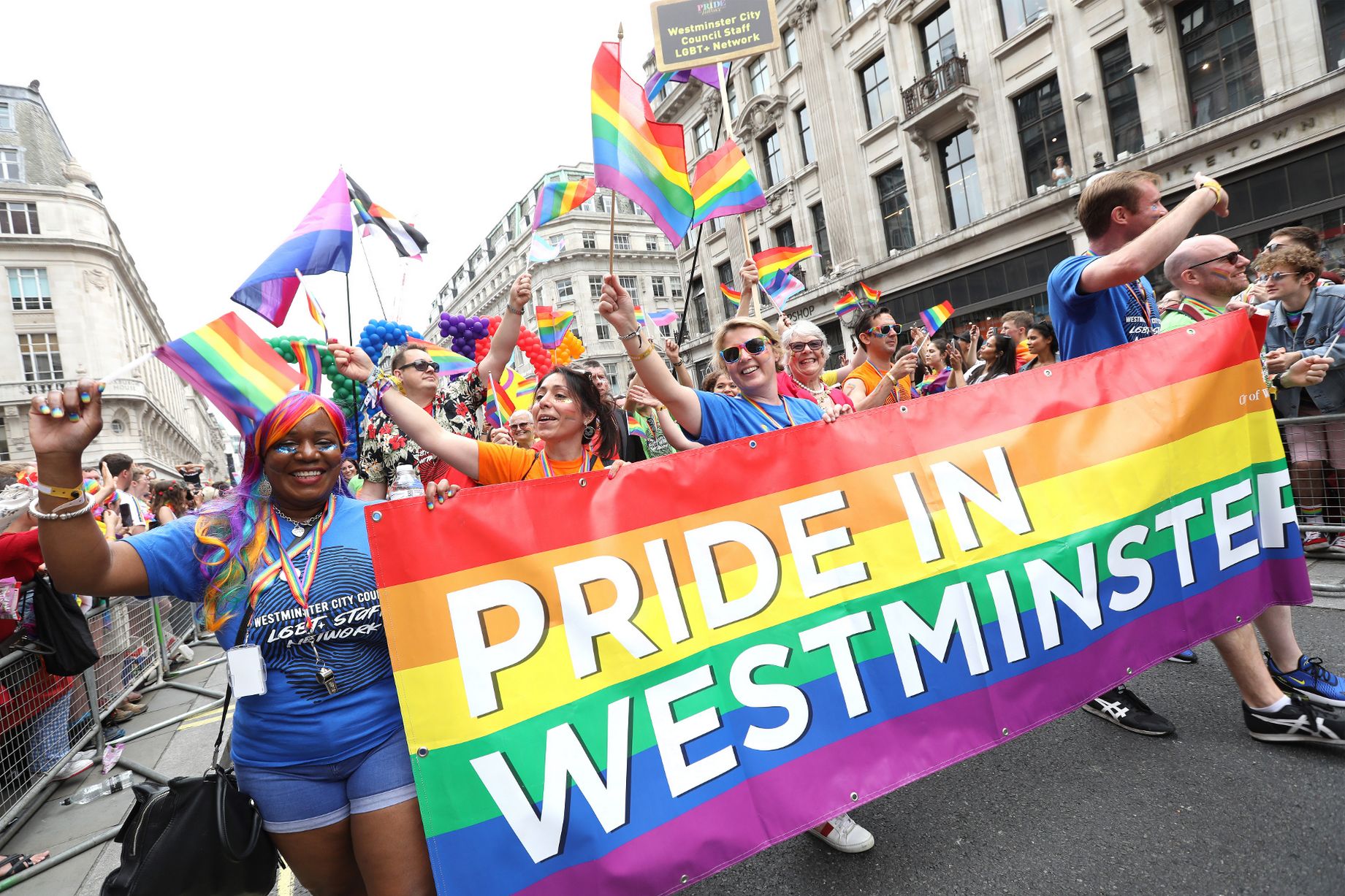
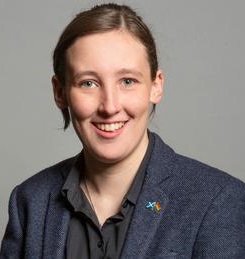
Who appeared at the Coronation Concert?
Will King Charles III Address
LGBTQ Rights?
As King Charles III is Crowned, Will he Address
LGBTQ Rights?
King Charles Coronation: Time for Royals to Face
Up to Britain’s Anti-LGBTQ Colonial Legacy
King Charles III and New Prince of Wales: Royals'
Attitude About LGBTQ Rights
Queen had Understanding of LGBTQ Community, Says Gay
Former Lord Mayor
Derek Pattinson - Secretary General of General
Synod of Church of England
Paul Dehn - Screenwriter
Christine Goodwin - Trans Rights Activist
James Fenton - Poet
Simon LeVay - Scientist
Lynda Cash - First Transgender person in Royal Navy
Rob Halford - Singer, Songwriter (Judas Priest)
Matthew Bourne - Choreographer
Noel Coward - Playwright, Composer, Director,
Actor
Antony Grey - Activist
Clive Baker - Writer, Film Director, Artist
Neil Tennant - Singer, Songwriter (Pet Shop Boys)
Munroe Bergdorf - Model, Activist
Simon Amstell - Comedian
CD Broad - Philosopher, Historian, Scientist
Ossie Clark - Fashion Designer
Mark Ashton - Activist
Holly Johnson - Musician (Frankie Goes to
Hollywood)
Quentin Crisp - Writer
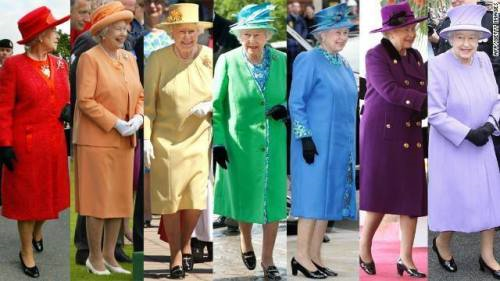
WH Auden - Poet
AE Housman - Scholar, Poet
Basil Hoskins - Actor
John Curry - Olympic Skater
Matthew Rush - Soccer Player
David Hockney - Painter, Photographer
Mike Beuttler - Formula One Racecar Driver
Jasper Conran - Fashion Designer
Algernon Charles Swinburne - Poet, Playwright,
Novelist
Carol Ann Stone - Trans Anglican Priest
Paul Patrick - Educator, Activist
Keith Milow - Artist
Lionel Blue - Rabbi
John Inman - Sitcom Actor
Kate Craig-Wood - Trans IT Entrepreneur
Alexander McQueen - Fashion Designer
Antony Tudor - Dancer
Peter Tatchell - Politician, Activist
Robert Rinder - Judge
Nigel Hawthorne - Actor
Justin Fashanu - Soccer Player
EM Forster - Novelist
Peter Landon - Computer Scientist
Judy Carne - Actor (Laugh In)
World LGBTQ News
Greece: Legalizes Same-Sex Marriage in First for
an Orthodox Christian Nation
Congo: Government Cautions Media Not to Promote
LGBTQ-Specific Content
Uganda: President Signs Deadly
Anti-Homosexuality Bill into Law
Denmark: Princess Mary Calls for LGBTQ Equality
at Copenhagen WorldPride
Spain: Passes Law Allowing Trans People to
Self-Identify From Age 16
Russian: Post-Invasion Plan to
Kill Ukrainian LGBTQ Citizens
Poland: Some Regions End
LGBTQ-Free Zones
Italy: Mussolini's Granddaughter Speaks Out for LGBTQ
Rights
Brazil: President
Bolsonaro Say We Have to Stop Being a Country of Fags
England: Maureen Duffy is Britain's First Out Woman in
Public Life
Poland: Elects Harsh Anti-LGBTQ
President
Poland: Pro-LGBTQ Protest
at President's Inauguration
France: First Transgender Mayor Elected
Poland: Won't Let EU Force
It Into Legalizing Same Sex Marriage
Netherlands: Plans to
Remove Gender From ID Cards Entirely
Germany: Approves Ban on Conversion Therapy
Russia: New Survey Shows 1 in 5 Russians Want to Eliminate LGBTQ
Community
Germany: Ban on Ex-Gay Therapy
Russia: Putin Vows to Never Allow Same-Sex
Marriage in Russia
Diversity in the
LGBTQ Community
African
American/Black
Hispanic/Latinx
Arab/Muslim/Middle East
Asian/Pacific
Indian/Hindu/Sikh
Jewish/Israeli
Native/Two Spirit
HOME
QUEER CAFE
│ LGBTQ Information Network │ Established 2017 |